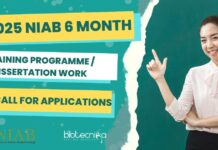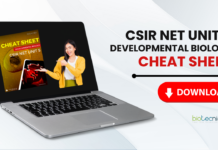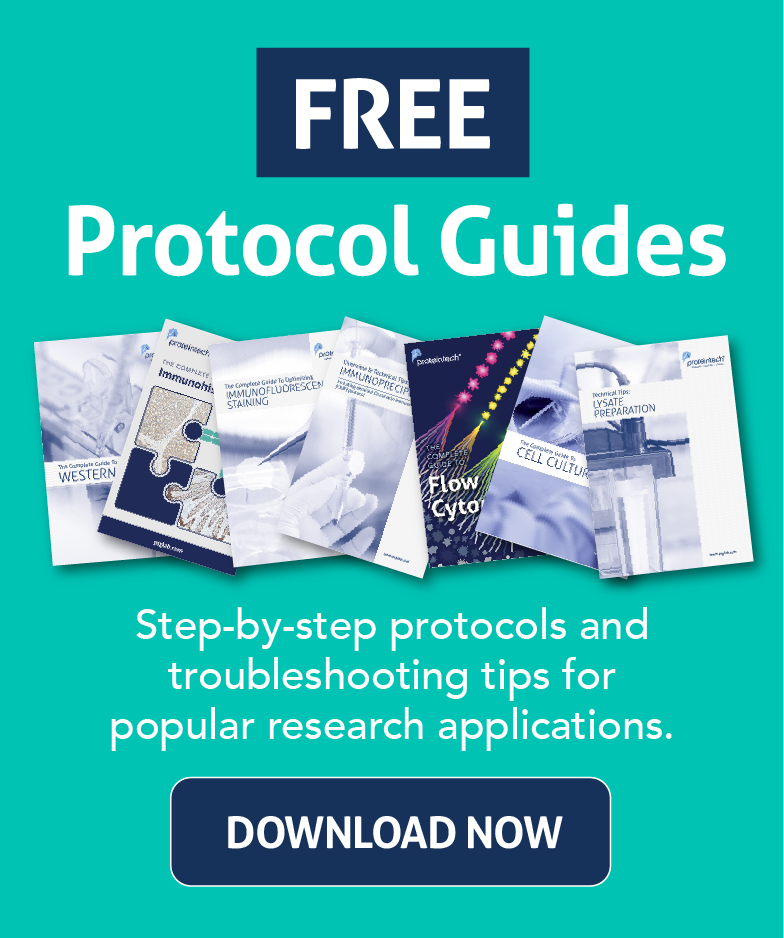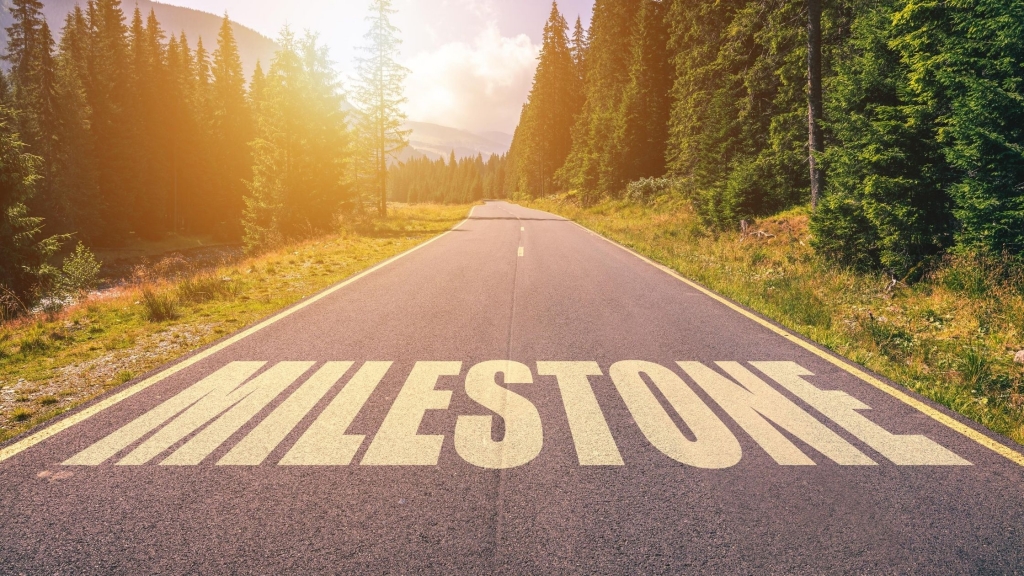
- Remember me Not recommended on shared computers
Forgot your password?
- Interviews and Visits

List of Interview Questions for Cell and Mol Bio PhD
By CellMol Biologica January 31, 2012 in Interviews and Visits
Recommended Posts

CellMol Biologica
Hello friends,
I thought of starting a thread where people jot down an exhaustive list of the questions they were asked during their PhD admissions. It wd be great if they are from biological sciences, but other disciplines also welcome to write as I believe many questions will be generic to PhDs. Most helpful would be people who have already attended the interviews, but others who are yet to take their interviews may also write the types of questions they think might be asked.
It would be great if you can write in this format: (for those who already attended)
Program Name : PhD Development Biology
Type of Student : Domestic/ International
School Interviewed with:
(#1) U Penn
Type of interview: Phone/Skype/ Face-to-Face
Questions Asked :
(#2) Ohio State University
(#3) Cornell University
- snes and aberrant

Link to comment
Share on other sites.
Anyone, please compile a list here so that myself and other students can use it for years to come. Thanks
- 1 month later...
Buckyball60
Would be nice to get some answers on this.
- 3 weeks later...
the defenestration
Nice topic! I interviewed with and was accepted to three schools for Cell/Molecular PhD programs this past application season - Baylor College of Medicine, University of Maryland, and University of South Florida. My area of interest is Cancer Biology; only USF has a program entirely dedicated to cancer, but the other two have Cancer Bio tracks and many great researchers studying what I want to study.
I really found that my interviews resembled conversations more than they resembled a typical job interview. I was never asked "What is your greatest weakness?" or anything like that (though I prepared answers for those types of things, just in case). Generally, when I walked in the room, the interviewer would start off the conversation by making a friendly comment on where I was from or where I did my undergrad, and then they would ask me to tell me about myself. I talked for about 3 minutes or so about my major, my lab work, and how I became interested in cancer biology - this length of time seemed to work very well, and they would ask questions so it wasn't just me rambling. After this, the conversation could take a number of turns. I had a few interviewers who wanted to know about my research in great detail, so I explained exactly what my project entailed, drew some diagrams, etc. More often than not, though, the interviewer would talk about their own research for at least half the interview (I had a couple of interviewers who launched into explaining their own projects without even asking me about myself). I was a little worried that maybe I wasn't giving them enough information about myself since they were just talking about their own research, but people really do love talking about their own interests. If you can get your interviewer talking about their own research, they will remember your interview positively, even if you don't use the full 30 minutes to talk about how awesome you are. When they are explaining their research, take notes, act interested, and ask an intelligent question or two at the opportune moment.
All that said, there were a couple of questions that I got quite a bit:
1. Why do you want to be in this program? Not a hard one, but make sure you do your homework. Pay attention to what the program directors emphasize about the program as well - chances are, these are the reasons they want you to like their school, and it won't hurt to mention some of those things that particularly stand out to you.
2. What other schools have you applied to? As far as I can tell, they are trying to decide whether you will actually attend their program. Be honest; they know you're applying to more than one program, but it's unnecessary to mention schools you have been rejected from or are no longer considering. The interviewer will probably ask a question or make a comment about your answer, after which point you can re-state the reasons why THEIR program is such a great fit for you.
3. Why were your grades so terrible during this particular semester? If you have a weak point in your application, be prepared to explain it. When they ask about this weak point, they are not out to get you - they want you to have a good, reasonable explanation, and if you have an interview chances are you have the explanation.
4. Do you have any questions for me? Always have questions! Remember, you are trying to evaluate the program as much as they are trying to evaluate you. You may end up asking the same questions toward the end of the day, but you may also get different answers.
Really, I think that is about it. If I think of any other questions I was asked, I will add those. However, I would like to add a few interview tips that I could have used coming in:
1. You have control over your interview. This is huge. It really is a conversation, and you can steer that conversation in whatever way you want. Obviously, don't sidestep a pointed question, but focus on the things you want to talk about. Come in with some things you want to say about yourself, and say them. You don't have to wait for the interviewer to ask a particular question, because they probably won't. Work it into the conversation.
2. Elaborate on the things you are interested in. This kind of ties in with my first point. From speaking to other interviewees, I learned that one interviewer could be very difficult for one person but another person would find the same interviewer to be easygoing and kind. The difference was usually a matter of perspective. Those who had trouble generally answered the question, shut up, and waited for the interviewer to fire another one at them. Those who actually enjoyed the interview saw it as more of a back-and-forth. If you talk about the things you know and are interested in, the interviewer gets to see that you are smart and knowledgeable, and you can prevent the interview from becoming a grill session where you may be asked about things you are not as knowledgeable about. Caveat: don't ramble. If you're done talking, you're done talking, and if you keep talking just to fill silence, you are likely to say something dumb.
3. Get them to talk about their research. Takes pressure off you, they enjoy talking about themselves, and you get to gain more perspective on the program.
4. Pr epare, but don't overprepare. I think a good thing to do is to take a sheet of paper for every interviewer and write a few short bullet points about them - what they're doing, where they got their PhD, specific questions you want to ask them. Then, take the sheets to the interviews and use them to take notes. At least for my interviews, it was overkill to read papers by every single interviewer. If you are very interested in working with a particular professor, by all means read a paper or two and ask them about it. Otherwise, keep it simple and don't stress about it too much.
5. Know your research. Be able to explain it inside out. If your current research is in a field other than what you want to get your PhD in (as mine is) then know how to explain it to someone outside the field. Interestingly, I found it was not as important to be well-versed in what I want to work on at the PhD level. In fact, I was told by several interviewers that many students' interests change after the first year and that having your whole PhD planned out was not that important. This may depend on the school, though.
6. Relax! Your interviews will be fine. Your interviewers want to like you. Be engaging, be interested, be excited to meet your interviewers. If something goes wrong during your interview, brush it off and recover. During one particular interview, I was convinced that I had made the biggest idiot of myself and that the interview had gone just terribly. I later found out that my interviewers recommended me unanimously for admission - so it can't have gone too badly!
I hope this helped! I know it's quite long, but I was so nervous before my first interview that I was reading as much advice as I could get my hands on... so maybe some of you made it through. Cheers, and good luck!
- BasicBinImmunology , suurkate , catbug and 16 others

- 10 months later...
wow, what a comprehensive instruction for interview! I have just finished my first interview, and I think I made myself an idiot. But after reading your opinion, maybe it's not that bad, and I have learned something in it. thx~
I have been selected for interview via skype by University of Sciences in philadelphia for cancer Biology PhD program. My interview is next week.
I am pretty much nervous as this is my first interview ever for PhD program, that too on skype. Can anyone please help me to prepare for my interview.
Also how to dress up for this type of interview/
And how do i bring them down to talk about thier own research work?
Anyone there to answer my question?
- 4 weeks later...

@The Defenestration: great reply! Thank you for instructions and suggestions. Very thoughtful of you.
I think there's no big difference between the questions asked at interviews in US and in EU, so I think my experience(s) could help.
1. Be prepared to be in "tune" with the general sentiment of the interviewer. Certain cultural backgrounds imply more or less of familiarity and closeness. Don't get me wrong, I don't mean to sell stereotypes, but I had an interview with a friendly Italian and a reserved German. So, yeah, I might be biased, but nevertheless, be extra careful and considerate. I actually found a more distanced interviewer more helpful, since it left me enough time and energy (and mental space).
2. Be thoroughly prepared. Refresh your knowledge on the topic, and, needless to say, read the available publications of your prospective team/mentor.
3. Be honest and concise. When faced with so-called "stress questions", respond truthfully. When asked other "unpleasant" questions, as Defenestration pointed out, the aim is not to embarass you or get you. They just want to know you a little bit better, personally.
4. And last, but not least, most labs actually want someone who is pleasant enough to work with, and if you're enthusiastic, imaginitive, and hard-working, all your potential short-comings (e.g. a couple of lower grades, modest practical experience) will be eclipsed. I say this because it might help you or any other interviewee to remain calm and not too self-critical.
@NewLearner:
I hope your interview went fine. As you've probably seen, there's really nothing to be nervous about. And maybe you could also write something about your experience?
I had one interview several years ago, where the PI handed me a pad of paper and asked me to comprehensively document the synthetic transformations that had gone into my undergraduate thesis. It was quite nerve-wracking.
- 3 years later...

On 5/1/2013 at 9:08 AM, Eigen said: I had one interview several years ago, where the PI handed me a pad of paper and asked me to comprehensively document the synthetic transformations that had gone into my undergraduate thesis. It was quite nerve-wracking.
If someone asked me to do that i'd probably walk out. Jesus.
Wow that's dredging up an old post!
- 5 years later...
On 5/1/2013 at 6:08 PM, Eigen said: I had one interview several years ago, where the PI handed me a pad of paper and asked me to comprehensively document the synthetic transformations that had gone into my undergraduate thesis. It was quite nerve-wracking.
Here's me dragging it again in 2022. Holy crap I'd have left as well. Were you successful though? Did you get the position?
One major difference between American and European PhDs is that in America you typically apply to a program while in Europe you apply to a specific PhD position at a specific lab.
Story: I had an interview at a lab in France. This was all on zoom.
Was asked to present my thesis to the supervisor followed by some questions - fairly easy. But I was sure I was not going to get it as they had postponed the interview 5 minutes before the start and looked very bored. But a few hrs later I was asked to come for an interview with the PI the following week.
The PI was rude, postponed the interview in the nick of time, was speaking to someone on the phone when I logged on zoom. During the first 5 mins I managed to upset her with something I should have known but didn't. She then grilled me on my family life, saying her students worked 11-13 hrs in her lab not including weekends. Said I needed to finish my Phd in 3 yrs as she was unwilling to fund a 4th. She told me my knowedge was superficial (fair) and I needed to work hard to be in her lab (also fair). Then she started making plans on me visiting France to present my thesis work, explained how I could apply for a visa to do my PhD...etc.
Turns out, I had gotten the PhD position but no one told me explicitly that I had been selected by the supervisor.Anyway, I had to decline. I couldn't get into such a toxic workspace.
All to say that you never know what they will accept I suppose. Try your best. Read up on their work if you're applying to a certain lab. Be well versed in your own work.
P.S I had another interview with a French PI. Didn't do well, didn't get the position but the PI was very kind. These interviews were very focused on the technical and science aspect.
Create an account or sign in to comment
You need to be a member in order to leave a comment
Create an account
Sign up for a new account in our community. It's easy!
Already have an account? Sign in here.
- Existing user? Sign In
- Online Users
- All Activity
- My Activity Streams
- Unread Content
- Content I Started
- Results Search
- Post Results
- Leaderboard
- Create New...
Important Information
This website uses cookies to ensure you get the best experience on our website. See our Privacy Policy and Terms of Use
How to approach biology and biomedical graduate school interviews
The graduate school application process is exhausting. Tailoring multiple applications for each school is a daunting task. A sigh of relief finally arrives when invitations to interview for graduate programs arrive. However, as part of the application process, interviews carry a lot of weight, and most students don’t get a blueprint for what to expect and how to best prepare. Knowing what lays ahead in the interview process allows you to relax and sit in the excitement of starting a new chapter in your academic career.
Interview expectations from field to field differ, but this is how I best prepared for applications to biology and biomedical graduate programs.
Be prepared to talk about your previous research experiences. .
Graduate programs in the biological sciences will spend a lot of time evaluating your letters of recommendation and prior research experience ahead of interviews. You will likely be asked about these experiences and how they informed your decision to go to grad school.
To practice for this part of the interview, I prepared an “elevator” speech of my previous research experiences. This entailed framing a research question, explaining what approaches I used to answer it, summarizing the results of these findings, and what I plan to do next. To prepare for unanticipated questions, I also read review articles in my field and a couple papers that provided the background and rationale for my project. The more comfortable you are with your own work, the more engaging and helpful your conversations with interviewers will be.
Do your research on your interviewers and the program to come up with questions ahead of time.
Towards the end of interviews, you will often be asked if you have any questions for the interviewer. This is an opportunity to really get to know them or their research, and voice your interest in the program. Often, graduate programs will not let you know who you’re interviewing with until 24-48 hours ahead of interviews. This is for a specific reason: they don’t want you to spend an exhaustive amount of time reading about the research of each individual interviewer. However, it is helpful to jot down basics about what their lab works on to ask big-picture, overarching questions that can drive conversation and open-ended discussion.
This is also an opportunity to convince your interviewer that you have done your research on the program and are seriously considering joining for graduate school. You can reference specific labs that interest you, courses you’re interested in taking, or training opportunities that are unique to the program. Interviewers are more likely to advocate for you when they can tell that you are passionate about joining.
Attend as many prospective student events as possible!
Attending as many student events as possible will give you a sense of how life is like outside of school and let graduate students get to know you. If there are any important factors guiding your decision on whether to move somewhere for grad school, now is the time to ask them! Prepare by drafting questions on topics that are important to you such as housing, life outside of campus, access to nature, etc.
Finally, relax and be yourself!
Most graduate programs in biology will only interview students whose applications were already impressive, so the hard part is over. During the interview, you are evaluating them as much as they are evaluating you. It’s important for you to go somewhere you feel yourself and can comfortably call home!

Ryan completed her undergraduate studies at Cornell University in Cellular and Molecular Biology. She is currently pursuing her PhD thesis research at MIT, where her work is focused on understanding how proliferating cancer cells reprogram metabolism to maintain the metabolic requirements for rapid cell growth and division.
Related Content
PhD Interview Questions and Answers (13 Questions + Answers)

Most PhD applications include an interview. This allows your university (and perhaps even your prospective supervisor) to discuss the PhD with you in more detail.
This article lists some of the most common PhD interview questions along with their answers. The goal is to help you prepare for a PhD interview and pass with flying colors.
1) How did you develop this proposal?

When responding to this question, demonstrate your thought process, research skills, and the evolution of your ideas. Let's choose the subject of "Renewable Energy Integration in Urban Planning" as an example.
Sample answer:
"My proposal on 'Renewable Energy Integration in Urban Planning' originated from my undergraduate thesis on sustainable cities. Intrigued by the potential of renewable energy in urban environments, I conducted a literature review to identify gaps in current research. This review highlighted a lack of comprehensive strategies for integrating renewable technologies at a city-wide level. I then consulted with experts in urban planning and renewable energy, which provided practical insights into the challenges and opportunities in this field. I designed a methodology that combines spatial analysis with energy modeling to explore optimal renewable energy integration in urban landscapes. This proposal represents an amalgamation of academic research, expert consultation, and innovative methodology development."
This answer is effective because it mentions a literature review demonstrates the ability to conduct thorough research and identify gaps in existing knowledge.
2) Why do you wish to pursue a PhD?
For this question, it's important to articulate your passion for the subject, your long-term career goals, and how the PhD program aligns with these aspects.
Let's choose the subject of "Artificial Intelligence in Healthcare" for this example.
"I am passionate about leveraging technology to improve healthcare outcomes, and pursuing a PhD in Artificial Intelligence in Healthcare aligns perfectly with this passion. During my Master's, I was fascinated by the potential of AI to revolutionize diagnostic processes and personalized medicine. I believe a PhD will provide me with the deep technical knowledge and research skills necessary to contribute significantly to this field. My goal is to develop AI systems that enhance medical diagnostics, ultimately improving patient care and treatment efficiency. This PhD program, known for its pioneering research in AI and strong healthcare collaborations, is the ideal environment for me to develop these innovations and achieve my career aspirations in healthcare technology."
This is a great answer because you clearly state that the PhD will provide the necessary skills and knowledge, indicating a clear understanding of the purpose of the program.
3) Why do you think you are the right candidate for this PhD program?
Discuss how your research interests align with the program's strengths and the faculty's expertise. Explain how the program's resources, courses, and research opportunities can help you achieve your academic and career goals.
"I am deeply passionate about environmental science, particularly in the area of sustainable urban development. This passion was ignited during my master's program in Environmental Studies at XYZ University, where I completed a thesis on urban green spaces and their impact on city microclimates. This research not only honed my skills in data analysis and GIS mapping but also highlighted the importance of interdisciplinary approaches to environmental issues. I am drawn to your PhD program at ABC University because of its innovative research on sustainable urban planning and the renowned work of Professor Jane Smith in this field. Her research aligns with my interest in integrating green infrastructure into urban planning to mitigate climate change effects. My perseverance, attention to detail, and ability to synthesize complex data make me an ideal candidate for this challenging program. Pursuing this PhD is integral to my goal of becoming an environmental consultant, where I plan to develop strategies for cities to reduce their environmental footprint."
This response is effective because it mentions particular aspects of your experience and the program, avoiding generic statements. It also outlines how the PhD fits into your career path.
4) What do you plan to do after you have completed your PhD?
Be specific about the type of career you aspire to, whether it's in academia, industry, research, etc. Explain how the PhD will equip you with the skills and knowledge for your chosen career path.
"After completing my PhD in Computational Neuroscience, I plan to pursue a career in academia as a university professor. My doctoral research on neural network modeling will provide a strong foundation for teaching and conducting further research in this area. I aim to develop innovative courses that bridge computer science and neuroscience, addressing the growing demand for interdisciplinary knowledge in these fields. Additionally, I intend to continue my research on applying machine learning techniques to understand brain function, which has potential implications for developing new treatments for neurological disorders. This academic pathway allows me to contribute significantly to both education and research in Computational Neuroscience."
This is a great answer because it connects the PhD research directly to future career plans.
It also articulates how your work can impact both academia and the broader field of Computational Neuroscience.
5) Why have you chosen this specific PhD program?
Mention specific aspects of the program that attracted you, such as the curriculum, research facilities, faculty expertise, or reputation.
Explain how the program aligns with your research interests or academic background.
"I chose the PhD program in Artificial Intelligence at MIT because of its cutting-edge research and interdisciplinary approach, which perfectly aligns with my academic background in computer science and my passion for machine learning. The program's emphasis on both theoretical foundations and practical applications in AI is particularly appealing. Additionally, the opportunity to work under the guidance of Professor [Name], whose work in [specific area, e.g., neural networks or AI ethics] has deeply influenced my own research interests, is a significant draw. This program is an ideal fit for me to further develop my skills and contribute to the field of AI, ultimately aiming for a career in AI research and development in the tech industry."
This answer connects your background and goals to the program's offerings.
Including a specific professor's name shows detailed knowledge about the program and faculty.
6) What impact would you like your PhD project to have?
When answering this question, convey both the academic significance and the potential real-world applications of your research. Let's choose a project focused on developing eco-friendly battery technologies for electric vehicles for this example.
"My PhD project aims to develop new eco-friendly battery technologies for electric vehicles (EVs), addressing both the environmental impact of battery production and the efficiency of energy storage. I hope my research will contribute to the academic field by advancing our understanding of sustainable materials for energy storage, potentially leading to publications and patents. Beyond academia, I envision this project significantly impacting the EV industry by providing a more sustainable and efficient battery alternative. This innovation could play a crucial role in reducing the carbon footprint of transportation and supporting global efforts towards a greener future. Ultimately, I aspire for my work to not only advance scientific knowledge but also drive real-world changes in how we approach energy sustainability in transportation."
This is an excellent answer because it connects the project to larger environmental goals and societal benefits. It also reflects a forward-thinking approach, demonstrating your understanding of the project's potential long-term implications.
7) What difficulties would you expect to encounter during this project?
It's important to demonstrate awareness of potential challenges and convey a proactive mindset toward problem-solving. Let's choose a project focused on the development of a novel AI-driven diagnostic tool for early detection of neurological diseases for this example.
"In developing an AI-driven diagnostic tool for early detection of neurological diseases, I anticipate several challenges. Firstly, the accuracy and reliability of the tool depend heavily on the quality and diversity of the data used for training the AI algorithms. Obtaining a comprehensive dataset that adequately represents the population can be difficult due to privacy concerns and data availability. Secondly, ensuring the AI model's interpretability to be clinically useful while maintaining high performance is another challenge, given the complexity of neurological diseases. To address these, I plan to collaborate with interdisciplinary teams, including data privacy experts and neurologists, to source and utilize data ethically and effectively. I also intend to continuously refine the AI model, focusing on both its predictive accuracy and clinical applicability. These challenges, while significant, present valuable opportunities for innovation and interdisciplinary collaboration."
This response is effective because it clearly outlines realistic challenges specific to the AI diagnostic tool project. It also presents a proactive approach to overcoming these challenges, showing problem-solving skills.
8) How will you fund this project?
When answering this question, show that you've thought about the financial aspects of your research and are aware of funding sources that are available and applicable to your project.
"I have identified multiple funding sources to support my renewable energy research project at Stanford University. Firstly, I plan to apply for the DOE Office of Science Graduate Student Research (SCGSR) Program, which offers substantial support for projects focusing on sustainable energy. My proposal for this grant is already in progress, highlighting how my project aligns with the DOE's priorities in advancing clean energy technologies. Additionally, I'm exploring departmental fellowships at Stanford, particularly those aimed at renewable energy research. I am also keen on establishing industry partnerships, given the project's relevance to current energy challenges and the potential for collaborative funding and technological exchange. Last but not least, I will seek conference grants to present my research findings, which can lead to further academic collaborations and additional funding opportunities."
Notice how this answer mentions funding sources that align with the renewable energy focus of the project and the resources available at Stanford University.
9) Tell us about a time you experienced a setback
Focus on a situation relevant to your academic or research experience. Let's use a real-world example where a research experiment failed due to unexpected variables.
"During my Master’s thesis on the effects of soil composition on plant growth, I faced a major setback. My initial experiments, which involved growing plants in different soil types, failed to produce consistent results due to unanticipated environmental variations in the greenhouse. This was disheartening, especially as the deadline approached. However, I responded by reassessing my experimental setup. I consulted with my supervisor and decided to control more variables, such as humidity and temperature. I also refined my data collection methods to include more frequent soil and plant measurements. These adjustments led to more reliable results, and I successfully completed my thesis. This experience taught me the importance of adaptability in research and reinforced the value of meticulous experimental design."
This is a great answer because it shows how you’ve encountered and overcame a specific problem, demonstrating resilience and adaptability.
10) What are your strengths and weaknesses?
When answering this question, it's important to present a balanced view of yourself, showing self-awareness and a commitment to personal development. Choose strengths that are relevant to a PhD program and weaknesses that you're actively working to improve.
"One of my key strengths is my analytical thinking, which I demonstrated during my Master's project where I developed a novel algorithm for data analysis. This required me to not only understand complex theories but also apply them creatively to solve real-world problems. As for weaknesses, I sometimes struggle with overcommitment, taking on too many projects at once. This occasionally led to stress during my undergraduate studies. However, I am actively working on this by improving my time management skills and learning to prioritize tasks more effectively. I've started using project management tools and setting clear boundaries, which has already shown improvements in my workflow and stress levels."
This answer maintains a good balance between strengths and weaknesses. It also shows self-awareness, demonstrating a proactive approach to personal development.
11) Why have you chosen to study for a PhD at this university?
Mention specific aspects of the PhD program that attracted you. Explain how your research interests align with the work being done at the university.
"I am drawn to the PhD program in Astrophysics at Caltech due to its outstanding reputation in space research and the unparalleled resources available at the Owens Valley Radio Observatory. My research interest lies in the study of exoplanets, and Caltech's active projects in this area, such as the Zwicky Transient Facility, align perfectly with my academic goals. The opportunity to work under the guidance of Professor [Name], known for pioneering work in exoplanetary atmospheres, is particularly exciting. Additionally, Caltech's collaborative environment and emphasis on interdisciplinary research are conducive to my professional growth, providing a platform to engage with experts from various fields in astrophysics."
This response directly connects your research interests with ongoing projects and facilities at Caltech. It also shows you’ve done your research on faculty members and their work.
12) What can you bring to this research group?
Focus on your unique skills, experiences, and perspectives that will contribute to the research group's success. Let's choose the field of Biomedical Engineering at Johns Hopkins University for this example.
"As a prospective member of the Biomedical Engineering research group at Johns Hopkins University, I bring a unique combination of skills and experiences. My expertise in microfluidics, honed during my Master’s research, aligns well with the group’s focus on developing lab-on-a-chip devices for medical diagnostics. I have also co-authored two papers in this field, demonstrating my ability to contribute to high-impact research. Additionally, my experience in a start-up environment, where I worked on developing portable diagnostic tools, has equipped me with a practical understanding of translating research into applications. I thrive in collaborative settings, often bringing interdisciplinary insights that foster innovative problem-solving. I am excited about the prospect of contributing to the group’s ongoing projects and introducing fresh perspectives to advance our understanding and application of biomedical technology."
This response shows your relevant expertise, ability to work in a team, and the unique perspectives you can offer, positioning you as a valuable addition to the research group.
13) Do you have any questions for us?
Asking good questions demonstrates your motivation. It also shows that you’ve given some genuine consideration to the project and/or program you’re applying to.
Some questions you can ask the interviewer include:
- What will the supervision arrangements be for the project?
- What kind of training and skills sessions are offered as part of the PhD program?
- How many other PhD students has this supervisor seen to completion?
- Are there any major developments or partnerships planned for the department?
- Are there likely to be any changes to the funding arrangements for the project?
- What opportunities will I have for presenting my research?
Remember: you’re a good student, with lots of potential. You’re considering at least three years of hard work with this university. You need to know that you’ll get on with your supervisor, that your work will be appreciated and that there are good prospects for your project.
What to wear to a PhD interview
Wear formal attire for a PhD interview. Your best bet is to wear a suit. A navy blue suit is the best and most versatile option. No matter your gender, a suit is always very professional.
For men, wear a suit with a tie, dress shirt, and dress shoes. For women, wear a suit (pantsuit or skirt suit) with a blouse, or conservative dress, and closed-toe shoes.
When in doubt, it’s better to be slightly overdressed than underdressed. The goal is to make a professional impression and feel confident, without your attire distracting from the conversation.
What to expect from a PhD interview
At its core, a PhD interview will consist of questions that allow your potential supervisors to get to know you better and have an understanding of what you’d like to study, why you’ve chosen your field of study, and whether you’d be a good fit for the PhD program.
You should expect general questions to help the interviewer get a sense of your likes and dislikes, and your overall personality.
Next, expect questions about your personal motivations for studying a PhD. Your interviewer will also be interested in any relevant experience you have to qualify you to study this PhD.
In the next section, expect questions about your PhD project. You should be prepared to discuss your project idea in detail and demonstrate to the interviewer that you are the ideal candidate.
Last but not least, the interviewer will discuss your future ambitions and give you an opportunity to ask questions. Remember that this interview goes both ways.
It’s important to ask the interviewer relevant questions to show your engagement and the serious consideration you are giving their program.
You are preparing to spend several years of your life at this school. Think about what is important to you and what would make or break your decision to attend this university.
Prepare a list of questions ahead of the interview.
Understanding the interviewer’s point of view
During a PhD interview, interviewers are typically looking for a range of traits that indicate whether you are well-suited for the rigors of a doctoral program and a research career.
These traits include:
Intellectual Curiosity and Passion: A strong enthusiasm for the subject area and a desire to contribute to and expand knowledge in the field.
Research Skills and Experience: Demonstrable skills in conducting research, including designing experiments, collecting and analyzing data, and interpreting results. Prior research experience relevant to the PhD topic is often a plus.
Resilience and Perseverance: The capacity to handle setbacks and challenges, which are common in research, and to persist in the face of difficulties.
Collaboration and Teamwork: Although PhD research can be quite independent, the ability to work well with others, including advisors, faculty, and other students, is crucial.
Self-Motivation and Independence: The drive to work independently, manage one's own project, and stay motivated over the long term.
Fit with the Program: Alignment of the candidate’s research interests and goals with the strengths and focus of the PhD program and faculty.
These traits not only indicate your readiness for a PhD program but also your potential to contribute meaningfully to their field of study and succeed in a research-oriented career.
Related posts:
- University Interview Questions (16 Questions + Answers)
- Project Manager Interview Questions (14 Specific Questions + Answers)
- Strength-Based Interview Questions (21 Questions + Answers)
- Engineering Interview Questions (15 Questions + Answers)
- Business Analyst Interview Questions (17 Questions + Answers)
Reference this article:
About The Author

PracticalPie.com is a participant in the Amazon Associates Program. As an Amazon Associate we earn from qualifying purchases.
Follow Us On:
Youtube Facebook Instagram X/Twitter
Psychology Resources
Developmental
Personality
Relationships
Psychologists
Serial Killers
Psychology Tests
Personality Quiz
Memory Test
Depression test
Type A/B Personality Test
© PracticalPsychology. All rights reserved
Privacy Policy | Terms of Use

Interview Visits
Interviews are usually held in late January through early March by invitation of the Program to which a student has applied. Interview travel expenses are paid by the Division for domestic applicants. The Division programs do not pay international travel expenses but can sponsor domestic travel if the applicant is in the country already. Alternatively, remote interviews can be arranged.
What is a Graduate School Interview Like
Being invited for an interview indicates that faculty in the program believe that you are prepared for graduate school and have intellectual interests that match topics studied within the program. For the program, the goal of the interview is to assess your interests, background and goals more in depth. The interview is also an opportunity for you to assess whether Emory is the right fit for you, and we hope that it is. During the interview you will meet with faculty and current students, both formally (in individual or group interviews) and informally (at dinners, other events). During your visit you will learn about the research being done by faculty and students. During interviews, faculty and students will want to learn about your previous research experience, what types of biological questions interest you, and to what degree you possess "intellectual curiosity". While you are not expected to know everything about each faculty member's research, it is good practice to review research that is conducted in the program. You should ask questions and make every effort to be engaged. You should convey your love of science and your enthusiasm for research. Finally, remember that this is a few days where you get to be around other people who love science. Enjoy it.
Typical Interview Questions
Your scientific interests.
- What are your research interests? Put them in the context of the big picture.
- What aspect of the program is of greatest interest to you and why?
- Where do you see your field going in the next 5-10 years?
- What do you want to work on in my lab? (Note, your answer should be question, not system driven)
- Why are you interested in the research questions/field/discipline that you’re planning to pursue or are pursuing?
- What is an interesting paper you have read lately?
- What are the big picture questions (not topics) you want to investigate?
- How do you plan to approach your questions?
- Why do you want to pursue a PhD in your area of interest?
A General Perspective on You
- How do you work best? Independent or with a team? At home?
- What was the biggest challenge you encountered in your undergraduate classes or lab work, and how did you deal with it?
- What motivated you to apply to grad school?
- What have you done in the past that helps prepare you for graduate school?
- What do you think you will contribute to the program?
- Why do you feel prepared to start graduate school?
Previous Research Experience
- Be prepared to discuss your previous research experience.
- How has your research experience prepared you for graduate school?
- What questions did you help answer?
- Give examples of research troubles/failures/bad luck that you’ve tried to solve.
- How do your interests/past research experiences fit with the strengths and goals of the program?
- What are you looking to gain from your graduate school experience?
- What skills do you want to develop at Emory? How are you going to do that?
- Why do you need a PhD to achieve your career goal?
- Where do you see yourself in 15 years?
Emory and the Program
- Why are you considering Emory? In other words, what specific resources does Emory offer to enhance your scientific trajectory?
- How do you think your interests will fit in with the program?
- Why are you interested in the program?
- Who are you interested in working with? Why?
- Have you established a relationship with one or more faculty members within the program?
- Why do you think this program would be a good fit for you?
- What would make you choose Emory over other programs?
- What questions do you have about the program?
Other Resources
General advice.
- Graduate Admission Tips Interview
- Interview Information
- Impressing us on your Graduate School Interview
Questions you Might Want to Ask at an Interview
- American Society for Biochemistry and Molecular Biology (ASBMB)
Preparing for Online Interviews
- Ace Your Skype Job Interview GDBBS Interview Guide (PDF)

- Dec 8, 2020
Preparing for a PhD interview (Molecular Cell Biology)
By Annie Shaw

You’ve made it through the application process (a challenge in itself) and you get the email that says you’ve been invited for an interview. I bet, like I was this time last year, you’re feeling a mixture of surprise, excitement and nerves all in one! So here are a few tips to help you feel a bit more relaxed about the interview process, speaking from my experience applying for a DPhil in Molecular Cell Biology in Health and Disease at the Dunn School of Pathology.
It’s common for lab-based PhD interviews to revolve around a short presentation that you will give, discussing some kind of research that you have carried out. Don’t panic though, if the interviewers want this, they will tell you in your invitation! The purpose of this presentation is to demonstrate that you know how research works, understand what you did during your work and the reasons behind it, and can communicate this effectively. The actual results are less important than the discussion that develops, so don’t worry if you think the project you have to present didn’t get “good” results.
While it may be daunting having to walk into a room and present your work to a panel of interviewers, it actually makes preparing for the interview easier. Firstly, you are able to practice the presentation as many times as you like, which can help to calm your nerves as you’ll know exactly what you want to say when you get in there. Secondly, you will be the one specifying the topic of discussion, based on what you include in your presentation. This means you can try to think of what questions the interviewers may ask about your work and prepare some ideas beforehand. A good way to do this would be to practice your presentation to a staff member at your current institution, allowing them to ask questions throughout. This will help you to not only to see what kind of things the interviewers might think when they listen to your presentation, but will also provide you with practice at answering questions about your work when put on the spot.
While this discussion will take up the majority of the formal interview, you may also be asked about any part of your application that the interviewers would like more information about. For this reason, it’s really important to make sure you’re happy to expand on and discuss anything you put in your application. Finally, in normal times, you may be given a tour of the labs and a chance to discuss the project with the supervisor alone. This is a great opportunity to ask questions, whether that’s about the project, the department, or anything else you can think of, so definitely take advantage of it!
Just remember that an interview is a great learning experience, whether you’re successful or not, and they’re never as scary as you think they’ll be!
- The Application Process
- Post-graduates
Recent Posts
Breaking the Barriers: Applying to Oxford
My Final term as an Oxford DPhil
'Law with Law Studies in Europe' Interview Tips
Top 10 PhD Interview Questions
So, you’ve been invited for a PhD interview. Congratulations! This means that the admission committee thinks you are qualified and capable of doing a PhD at their university. The interview will allow the committee to determine if you’re a good fit, and you have the motivation and drive to complete a doctorate. While you cannot predict the exact questions you will be asked, certain topics are almost inevitable. Here are ten common PhD interview questions.
1. Tell us about yourself
This is a popular opener for just about any type of interview. It’s meant to be an easy icebreaker, but that doesn’t mean there isn’t a wrong answer. Make sure to your response is relevant to the context of a PhD interview. Talk about your academic background, motivation, and interests. You don’t have to get into the details at this point, just give an overview.
2. Why do you want to do a PhD?
This is another straightforward question that doesn’t have a straightforward answer. A PhD is a big undertaking and you’ll have to be driven to see it though. Your answer should address your motivation for doing a PhD in a way that conveys your passion and enthusiasm for the subject.
3. Why are you interested in this program?
What drew you to this program and this school? Does it have a unique feature or take a different approach than other programs? Are there certain professors you are interested in working with? Your answer to this questions shows you have done some research and are ready to engage in the department. It’s also an opportunity to demonstrate that you don’t just want a PhD, you want one from this school.
4. What experience makes you a good candidate?
Yes, the interviewer has read your CV, but this question allows you to draw their attention to specific qualifications or skills that might not be obvious from just your resume. Talk about courses you have taken that have taught you the necessary skills for graduate work or give examples of past research experience from your Bachelor’s or Master’s.
5. How did you develop this proposal?
There are no trick questions here. The interviewer wants to see that you are engaged with the field and spent some time preparing your proposal. Take them through your thought process and discuss the background reading and research you did. What other approaches did you consider before deciding on this one? What will your project contribute to the field?
6. What difficulties would you expect to encounter during this project?
No matter how carefully you plan, no project goes off without a hitch. Be honest about where you see potential difficulties, but more importantly discuss how you plan to work through them.
7. What are your strengths and weaknesses?
Another classic interview question, and one you definitely don’t want to be answering off the top of your head. Pick a strength that is relevant to this position and then give a few examples of how you have used it well. When it comes to choosing a weakness, be truthful and then (using examples again) talk about how you have been working to overcome it.
8. Tell us about a time you experienced a setback
The next three to six years of your PhD won’t be smooth sailing. You are likely to hit many snags along the way. The interviewer wants to know you are resourceful and can handle these setback. Try to think of an academic challenge you have had to overcome rather than a personal one.
9. What are your future career plans?
This is another way to suss out your motivations for doing a PhD and see if you have given a thought to what comes after your doctorate. How will a PhD help you achieve your future goals? Someone with a clear goal in mind is likely to be more committed to doing a PhD. For many, the goal will be to pursue an academic career, in which case this is an opportunity to show you understand the academic career path.
10. Do you have any questions for us?
Remember that this interview goes both ways. It is important that you have some questions to ask the interviewer to show your engagement and the serious consideration you are giving their program. You are preparing to spend several years of your life at this school. Think about what is important to you and what would make or break your decision to attend this university. Prepare a list of questions ahead of the interview.
The interview is your time to shine, and being prepared will allow you to do just that.
Discover related jobs
Discover similar employers
Accelerate your academic career
Doing a PhD in Europe vs. the US
Are you thinking of doing a PhD abroad? There are some considerable diff...
Skype Interview Tips
There are a few practical things to keep in mind when preparing for a vi...
Moving to Denmark to Research or Study
Denmark attracts thousands of students and researchers each year. Here a...
How to Email a Professor
Emailing a professor is different from emailing a friend or family member.
Find Work-Life Balance in Grad School
A good work-life balance contributes to your overall mental and physical...
How to Pay for a PhD
Before applying for a PhD it is important to consider how you will pay f...
Jobs by field
- Programming Languages 184
- Electrical Engineering 181
- Machine Learning 172
- Artificial Intelligence 171
- Molecular Biology 143
- Electronics 132
- Materials Engineering 130
- Computational Sciences 130
- Cell Biology 127
- Materials Chemistry 110
Jobs by type
- Postdoc 315
- Assistant / Associate Professor 145
- Researcher 126
- Professor 93
- Engineer 64
- Management / Leadership 60
- Research assistant 52
- Lecturer / Senior Lecturer 50
- Tenure Track 37
Jobs by country
- Belgium 226
- The Netherlands 179
- Germany 128
- Morocco 127
- Finland 109
- Switzerland 96
- Luxembourg 76
Jobs by employer
- Mohammed VI Polytechnic Unive... 131
- KU Leuven 96
- University of Luxembourg 74
- Eindhoven University of Techn... 72
- Ghent University 41
- ETH Zürich 35
- KTH Royal Institute of Techno... 32
- Leiden University 31
- University of Twente 30
- Internships
- Career Advice
- Exam Alerts
- Scholarships
- Research Proposals ✍️
- Case Studies
- Promote & Earn
- Teach & Earn
- BioTecNika Global
- 💰 Earn from BioTecNika
- 👩🚀 Work @ BioTecNika
- 📜 Advertise With us
- 🤙 Contact Us
- 👬 About Us

Worlds First Artificial Intelligence-Driven Oral Cancer Database Developed by Jamia Millia Islamia

Press Release: Cabinet approves BioE3 (Biotechnology for Economy, Environment and Employment)…

IISc: Breakthrough Dye Technique Detects Superbugs Faster Than Ever!

From India with Precision: New CRISPR Enzyme Promises Better Genetic Editing

HIKE Announced under Various Career Fellowships of Department of Biotechnology

BRIC-NII Research Intern For Biological Sciences With Monthly Fellowship – Apply…

2025 NIAB 6 Month Training Programme / Dissertation Work Call For…

NCCS Pune Post Graduate Dissertation January 2025 Session – Applications Open

Exciting Student Internships With Assistantship at CSIR-CSMCRI! Biotech & Microbiology Apply

Govt BIRAC Regulatory/Policy Interns With Up to Rs. 50,000 pm Pay…

Biotecnika Times Newsletter 06.09.2024 – BIRAC Rs. 2 lakh pm Pay…

Biotecnika Times Newsletter 05.09.2024 – 15+ Govt DRDO Jobs, Foxtale Hiring,…

Biotecnika Times Newsletter 04.09.2024 – BRIC-NII Research Intern, NCBS-TIFR High Pay…

Biotecnika Times Newsletter 03.09.2024 – Freshers Jobs, 2025 NIAB 6 Month…

Biotecnika Times Newsletter 02.09.2024 – DBT-inStem Non-NET JRF Job, ICMR High-Pay…

CSIR NET LIFE Science & GATE Biotech Syllabus Comparison

Genetics career Scope and Opportunities

Will AI Take Our Jobs- Should Biotech Candidates Be Worried

JCB Scholarship Notification + CSIR NET Junoon Batch – Apply Now

Breaking News : CSIR NET 2022 Latest Exam Update With PROOF

Coding for Biologists For Beginners FREE eBook Download – Journey From…

CSIR NET UNIT 5 Developmental Biology Cheat Sheet FREE Download Available…

AI ML In Biology: A Complete Beginner’s Career Guide – Download…

CSIR NET 100 DAYS Master Study Planner For June 2024 …

CSIR NET Dec 2023 Cut Off Released For JRF / LS…
- BioTecNika TV
Top 12 Questions Asked During PhD Interview & How to Answer Them
Top 12 Questions Asked During PhD Interview & How to Answer Them
A Ph.D. Interview freaks out a lot of candidates. They often struggle thinking what all questions will be asked and how he or she should prepare oneself. PhD Interview format and the type of questions asked vary with institutes. You may be called for a one-on-one interview with your potential supervisor in person or via Skype. Most of the institutes follow a formal interview format which is conducted in front of a panel, and you can be asked to give a presentation to the department. Rarely you will be called for an informal chat with your potential supervisor and their students over lunch. Regardless of the type of interview and level of formality, you must do your homework and prepare for the interview. Of course, you cannot predict the specifics of the questions that they will ask you, but certain topics are almost inevitable. As per our survey, below we have tried to accumulate a set of Q&A, Top 12 Questions Asked During PhD Interview & How to Answer Them. Lets Dive In!
Q1. Tells Us Something About Yourself or Give a Brief Introduction about yourself!
Appearance – This is the most important attribute of an interview. One should be dressed up properly as it shows that you’re paying attention to the details and care about making the right impression. Truly said by someone, What you wear is a part of who you are! Hence use it to communicate your personality. Keep the focus on you by avoiding flashy accessories and extravagant attire. Be simple.
How to Start – How you pitch your first line matters. The intensity of your voice & the choice of words matters. Plan on the first few speaking moments of your introduction beforehand. Confidence is equally important as your appearance. To establish a solid foundation, boldly state your name. Don’t be afraid to speak up. A solid volume shows you’re confident and that you are excited about the opportunity.
Here’s an example that someone applying for a Biotechnologist position might use: “My name is Anurag and I’m a passionate plant biotechnologist with over five years of research experience specializing in somatic embryogenesis and haploid culture. I’m looking forward in growing my technical and research skills to develop and inspire a thought of my own.” Customize it further as per your & the post requirement and Bingo! You will have a great start! ________________________________________________________________________
Q2. What do you plan to do after you complete your PhD?
Ans : Strategically answer to this question. Start with “I am really excited to do my PhD in this subject, this has been my topic of interest since my masters, after exploring it further during my PhD that too in this institute, I am sure I am going to like it even more, so definitely at this point of time i am willing to pursue my postdoctoral studies after PhD to broaden my horizons further. I would even like to take up an opportunity if it comes by to serve myself as a professor, rendering my knowledge to our future assets.”
Above answer is just an example to give you an idea about how excatly the flow of your statemnet should be. Analyze first what are your future plans and then frame your answer accordingly. ________________________________________________________________________
Q3. What do you think are your strengths and weaknesses, can you highlight them?
Ans: The best way to answer this tricky question is to keep the job description in mind and then tread cautiously. Do not speak your heart out. Be specific and to the point.
Speak about your strength in conjunction to the Job requirement. For example, if the job revolves around a lot of team projects, in that case, you might say that you are a great team worker and clear communicator who can work with diverse groups of people.
While addressing your weaknesses, avoid pointing out weaknesses that would make you unfit for the job. For example, if the job requires a lot of skills technical skills on handling R&D equipment, do not say that your weakness is technology. Also, no matter what weakness you select, show a positive side to it. Like you are working on your particular weakness rigorously and it will never reflect in your work.
Q4. Any type of training you are planning to take up during or after of your PhD?
Ans: The answer to the above questions can be given in the below way:
“Yes, definitely Sir/Madam, some training/workshops or hands-on technical skill development programmes are on my top priority list which I am planning ahead of my Ph.D. I have learned that major biotech and biopharma companies in spite of having an appropriate academic degree and academic qualifications overall, new graduates were hired for less than 15% of all available entry-level job openings. Later I understood that Transferable job skills are a major issue among new PhDs. If I can somehow minimize this skill gap I feel it will be beneficial for me.”
Q5. Why are you choosing this particular project?
Ans: Say that “According to me, this project is much related to my prior work knowledge and it will be easier for me to connect with the current project and provide fruitful results. Moreover, I want to expand and extend my thought of research to a higher level and this project will be the best platform for me.”
By now you must be knowing some specifics of the project you are going to work on, pick up keywords and frame your answer around it. This question is generally asked in order to check how passionate you are about the subject.
Q6. What makes you the right candidate for this PhD?
Ans: I am a self-motivated person who is willing to give 100% in the project. If I am selected for this PhD not only I will implement my existing knowledge but will also be open to exploring advanced techniques. I hold a lot of experience & hands-on exposure in ‘Plant tissue Culture lab’ (For example) as I had Plant Biotechnology as my special paper in my masters and post Msc I have worked as a project assistant for 2 years ( Supposed) in a lab. The requirements of this project and the prior knowledge I have suggests that I will be a perfect fit for it. So for sure Sir/Mam I can bring my successes and experiences to my PhD work here.
Q7. What difficulties do you expect to encounter during this project?
Ans: This question has been the most common & an important part of most of the Biotech PhD interviews. This question can be thrown at you either in the beginning while you are talking about your strength & weakness or during the time you explain to them about your post PhD plans. Tackling this question perfectly can be a key to your selection in the PhD Interview.
As an answer to this question you can cite: “I per my understanding in order to start with the project I need to go through the existing archived research records, hence those should be easily accessible, also easy access to the labs for conducting studies, proper SOP’s in place are the major things I am concerned of which I am sure will definitely be taken care of here, without even me asking for it. (Say it with a confident smile ). The most common crisis I feel we will have to face is a shortage of required sample & chemicals if that can be taken care of, it will help us accelerate our work.”
I can understand you will be very much tempted to speak about fund crisis as one of the major challenges you will face, but mentioning this point in the first meet is not advisable. Analyze the members in the interview panel and then take up this point.
Q8. What would you like the impact of this project to be?
Ans: The answer for this may vary from person to person depending on the type of project you are getting into.
For example, if you are getting into a cancer-related project, say that ” Intense research is being done on this topic worldwide. Advancements are there yet nothing breakthrough. I would like to take this project in a direction where not only we focus & analyze areas untouched, but also it yields a prominent result. I would put my every possible effort & knowledge to come out with some breakthrough research which could save the mankind from Cancer.
If you are getting into hardcore Biotech research cite that: “As my work will be mostly around biotechnology, which is an applied branch of science, I hope to provide some economic benefits to the biotech industry globally and moreover, I’m keen to share my passion for this subject with a wider audience. ________________________________________________________________________
Q9. How are you planning to fund this project?
Ans: Questions related to funding are asked in interviews concerned with non-funded PhDs. In case you have a fully funded PhD, you might still be asked about contingency plans if funding falls through or the project is overrun due to some unforeseen circumstances.
You can reply by saying: “In case of a funding issue my first step will be to short-listed external funding agencies who will be willing to fund in our project. If needed I can work part-time, earn in some extra bucks without hampering my major project work, just to fund the project temporarily until the fund crisis is resolved. I would never like the project to stop abruptly, will do whatever in my hands to support the project.” ________________________________________________________________________
Q10. Why you want to do your PhD from this University ?
Ans: To answer this question you have to come prepared. Discuss what you really understand more about its own particular R&D Department and the university. Discuss how this University will be able to assist you and the way they’re much better than the others. Describe how you will be able to bring about their endeavors and you’d love to study & grow with the supervisors assigned.
In short, a simple answer to this question can be given as :
I have looked at plenty of chances in this area. I feel this project is best among one of its kind, combining a research angle that is exceptional with a training module that will meet my professional needs. I was already familiar with the job of my potential supervisor and their study has greatly influenced my knowledge development. A combination of my skills aided by the guidance of my supervisor along with the universities extremely advanced infrastructure at the display I assure you this project will be a hit.
________________________________________________________________________
Q11. What can you bring to this research group?
Ans: “I’ll be honored if I could be part of the research team and will attempt to bring huge development in Research Quality. I have learned plenty of technical skills in past work experience and it’s going to be a terrific opportunity for me to execute exactly the exact same inside this study group. I also mean to publish my own research work in cooperation with my teammates in impactful & renowned journals. Moreover, I would love to teach my juniors along with my group mates using whatever abilities and understanding I have accumulated till date in my experience.”
Q12. If you repeatedly get negative results in your project, what will you do?
Ans: “Sir/Madam repeated negative consequences is a symptom of a new study measurement and may contribute to some fresh ideas respective to our scope of the study. I have also learned about this a group of journals that have been specially designed to release the ‘rejects’ for example the Journal of Negative Results in Biomedicine. May more such journals exist. Negative findings can also be progressively represented in broad-scope journals like Disease Models & Mechanisms and PLoS ONE. So sir/mam I believe one ought to keep high trust and soul on adverse results instead of becoming a pessimist.”
So here we are with Top 12 Questions Asked During PhD Interview & How to Answer Them. In this piece, we have tried to enlist most common questions that are asked during PhD interviews. The above answers are just a suggestion meant to guide you, give you an idea on what kind of answers exactly the interviewers expect from you and how you should frame your answers smartly in order to get through the selection process.

Do let us know your views by commenting below. Also, do let us know if you have any question or topic in your mind which you feel we must answer & cover it on our website which would help a lot of students.
- PhD Career Advice
- PhD Admissions Open
RELATED ARTICLES MORE FROM AUTHOR

Best Bioinformatics Degree Offered By Top Institutes in India!

Top 10 Essential Bioinformatics Tools & Techniques For Successful Biotech Experiments

Kickstart Your Bioinformatics Career: Download Free Bioinformatics Market Research Report PDF
Extremely useful .Thanks
Its indeed a great article to give a view point about the potential interview questions a candidate must have in mind while preparing for a phd interview. My question is suppose a person has plans to join an R&D organisation or industry after Phd then how one should answer question 2?
Thank you Dr. Ghosh. Your article seems a great source of confidence booster in nervous conditions like PhD interview. Appreciate your share.
Comments are closed.

WISE-SCOPE Fellowship Program By DST – Opportunity For Women Scientists & Technologists
Chevening scholarship 2025-2026 | opportunity for indians to study in the uk on a..., raman-charpak fellowship 2024 for biological, life & agricultural sciences – bonjour france.
- Privacy Policy
- Terms of Service
- Advertise on BioTecNika
- Primary Antibodies
- Conjugated Antibodies for IF
- Conjugated Antibodies for FC
- Secondary Antibodies
- Antibody Labeling Kits New
- Magnetic Cell Separation Kits
- Cytokines & Growth Factors
- Neutralizing/activating Antibodies
- Nanobody-based Reagents
- Accessory Products and Kits
- Fusion Proteins
- Atlantic Blue™
- Cardinal Red™
- CoraLite® Plus 405
- CoraLite® Plus 488
- CoraLite® Plus 647
- CoraLite® Plus 750
- CoraLite®488
- CoraLite®532
- CoraLite®555
- CoraLite®568
- CoraLite®594
- Alexa Fluor® 488
- Alexa Fluor® 568
- Alexa Fluor® 647
- CoraLite®647
- CoraLite Plus 405
- FITC Plus NEW
- CoraLite Plus 488
- CoraLite Plus 555
- CoraLite Plus 647
- CoraLite Plus 750

Example PhD interview questions and answers
How to succeed in your PhD interview with answers to frequently asked questions
The interview is a crucial and inevitable part of the PhD application process. It is an opportunity for the supervisor(s) and funding bodies (if it is a funded PhD) to determine whether you are the right candidate for the challenge that is undertaking a PhD. Although this can be a daunting process, with preparation you can go into your interview feeling confident and put your best self forward.
Interviews for PhD positions will likely involve a short presentation on the proposed research project and/or your previous research experience. You can adapt the focus of this depending on how much prior experience you have to showcase. If you have an extensive research portfolio from your BSc/MSc project or time spent in industry, do not shy away from it, especially where there is direct relevance to the project you are applying for.
Following the presentation, you will be asked questions and will also have the opportunity to ask questions of your own (we recommend having a few prepared!).
We have collated some of the questions that are frequently asked in a PhD interview, along with tips on how to answer them. But please remember, the interview process varies widely and this blog aims to provide a suggestive framework on how to answer.
“Tell us about yourself”
This is a typical opening interview question and is often used as an icebreaker. You can practice your answer to help you get off to a good start when you will be most nervous. While it might be tempting to go straight into the details of the project and your career thus far, you can ease into the interview – there will be plenty of opportunity to discuss the project later. Instead, you can focus on your academic career so far, your scientific interests (e.g., a strong interest in biochemistry), and relate them to your desire to undertake a PhD.
“Why do you want to do a PhD?”
This is an important question that you also need to ask yourself, and be convinced of the answer! A PhD is a big undertaking and having the right reasons will carry you through the potentially tough times. Example points to include here:
- A professor during your undergraduate degree that inspired you
- A desire to help improve the outcome of patients with a specific disease (relevant to the proposed project)
- A love for science that you want to put into practice and contribute to the collective knowledge in that area
- You are an inquisitive problem-solver and want to combine this with your interest in [topic].
Stay true to yourself with the reasons that motivate you to do a PhD – there is no right answer and if you have come this far you likely have the right motivations.
“Why do you want to work on this project/Why do you think this project is important”?
This is your opportunity to go into the details of the research proposal and its relevance in the wider context of the research field. This is particularly important if the project will be competing for limited funding. You want to demonstrate to the panel that this project is a worthwhile investment and has clear, impactful outcomes. You can also discuss specific techniques that will be used in your PhD, and how these are cutting-edge and are perhaps more likely to lead to a publication. If the project has potential for collaboration, highlight this and the intended outcomes.
“Why do you want to work in this research group/for this PI?”
Make sure you have thoroughly researched your supervisor’s group, and their previous publications and collaborations. Perhaps highlight a recent high-profile publication or a new technique they have recently developed. This will show your commitment and enthusiasm to join the group, as well as reflect what the group and university are proud of. A supervisor needs to know that your research goals align and that you will mesh well with the rest of the team.
“What can you bring to this group?”
This is your opportunity to showcase both your technical and soft skills. Here you can mention the research experience you already have and how these skills and ideas will enhance the lab. If you do not have much research experience, talk about how you are a fast learner (with examples) and have a keen sense of science and willingness to learn. As mentioned in the previous answer, your future supervisor will want to ensure you are a valuable addition to their team. If you are not specialized in a technique, don’t worry – you are here to learn and most people starting a PhD have limited lab experience.
“Why do you want to be at this university/on this funding program?”
A PhD is a significant time and financial commitment; the funders or members of the university need to know candidates are committed to them as well as the research. Spaces are limited and there needs to be differentiation between candidates. A tip here is to flatter your interviewers by mentioning what they are proud of about their institutions (easy to find online). Example points to mention:
- A world-leading institution with an excellent publication and funding record
- Research collaborations that interest you or could benefit you (e.g., close ties with clinical trials or pharmaceuticals companies)
- Specific facilities or equipment the university has to offer (e.g., a super-resolution microscope)
- The ethos of the university is one you closely align with
- Funding programs that come with additional training and funding opportunities for internships and collaborations. Specific benefits outside of the research are the ones you will want to highlight to the funders, to show your commitment not only to the PhD but also to their investment in you.
“What makes you the right candidate for this PhD project?”
This can be a tough question to answer if you have had limited prior experience, but do not be afraid of positively selling yourself. Focus on your determination and desire to contribute to research, your drive for this project, your technical skills, your belief in the impact of the project, and how well suited you are to your supervisor/supervisor’s team.
“What would you like the impact of this project to be?”
Impact in research is mostly measured by publications or obtaining data to apply for further grants. Your ability to discuss this shows your awareness of the research world beyond the microsphere of your PhD. Research is meant to be disseminated via publications and conferences. The immediate impact of your project will not be clear-cut at the start, but you can openly discuss it, which shows a maturity that will benefit you in the interview. Essentially, you want to demonstrate that the proposed project will have an impact beyond the PhD itself and will inform future research.
“What difficulties do you expect to encounter during this project?”
Here you can discuss the specific technical challenges you have identified (e.g., I will need to optimize the culture of these primary cells or I will need to establish a new model to investigate vascular dementia in iPSCs). This shows that you have thoroughly considered the project and are not afraid of facing challenges. If you can, discuss how you plan to overcome these challenges.
“What are your strengths/weaknesses?”
This is another popular interview question and one to prepare. Personalize your answer with examples and use tools like STAR (S-situation, T-task, A-action, R-response) to structure your answer. When discussing weaknesses, you can share how you are working on these, or perhaps put a positive spin on them. Read our interview success blog for general interview tips !
“What do you want to do after your PhD?”
You may not be sure of your future career plans at the time of your interview, but it’s good to prepare a response as this is a common question. Doing a PhD sets you up for an academic career path in research and teaching. Even if this is your plan for your career, emphasize your desire to work in academia and teaching. It is also okay to say you will keep your options open to whatever paths come your way during the 4+ years of your PhD.
“Describe a time you experienced a setback and how you overcame it.”
This is a very common interview question in general and we would advise giving an example in a professional or learning setting rather than a personal one. Plan ahead and respond in a STAR format to help you give a clear and impactful answer. If a similar situation arose again and you dealt with it differently, make sure to highlight this.
“How will you keep yourself motivated throughout the project?”
You can discuss your driving factors behind wanting to do a PhD, and this project specifically. Be open to the knowledge that you will experience peaks and troughs throughout your time as a PhD student – this demonstrates to the interviewers that you’re realistic about the hardships of doing a PhD. Perhaps mention the hobbies (exercise, reading, cooking, etc.) you use to relax outside of work and ensure you maintain a healthy work-life balance.
“What are some recent publications in the field?”
This question is to ensure you have read around your project before the interview and are ready to discuss/summarize some recent publications. This shows your dedication and passion for the PhD project and your preparation for the interview.
“Do you have any questions for us?”
You should have some questions prepared to ask the interviewers. This reinforces your interest and that you are serious about the PhD.
Here are some questions you can ask:
- If speaking directly to the supervisor, you can ask project-specific questions or clarifications from the research proposal
- Will I have any teaching opportunities?
- Are there opportunities and support available to disseminate my work (e.g., conferences, publications)?
- What are the training and career development opportunities?
- Are there any developments planned for the department or university?
For other tips on careers and life as an early-career researcher, please visit our ECR hub .

Blog written by Lucie Reboud, intern at Proteintech, PhD student in cancer research at the University of Manchester.

Related Content
How to succeed in an interview - Academia vs Industry
CV writing for academia and industry
How fellowships can advance your scientific career
Transitioning from Academia to Industry
Pathway Posters Library
Early Career Researcher Hub
Newsletter Signup
Stay up-to-date with our latest news and events. New to Proteintech? Get 10% off your first order when you sign up.
Which program are you applying to?

Accepted Admissions Blog
Everything you need to know to get Accepted

January 18, 2024
How to Prepare for Your PhD Interview

Although not all PhD programs require interviews, most do, and you will usually interview with the faculty member who will be supervising your research. If you’re invited to a PhD interview, you want to take full advantage of the opportunity you’ve been given by preparing effectively.
In this post, we’ll focus on some of the questions you might be asked in your PhD interview and offer tips on how to prepare for them.

What were the factors that prompted you to apply to this program?
- Review your notes on the department.
- Familiarize yourself with the research agendas of the faculty members, especially the professors you want to work with.
- Make note of any unique opportunities you would have as a student in the department. Does the department provide funding to attend and/or present at conferences, or subsidized housing for graduate students?
- Read journal articles or books written by the professors you are most interested in.
What are your research interests?
- Be prepared to briefly discuss your past research and how it influenced what you want to research in the PhD program.
- You might also be asked about your research methods. You’ll want to have an explanation ready as to why you elected to investigate your hypothesis the way you did. If you could start again, what would you do differently?
What is your research plan?
- Present the specific topic you aim to research in the program and explain how you believe this research will contribute to the field.
- Be prepared to discuss important issues in the field, such as bias and discrimination in AI training data or algorithms.
What strengths are you bringing to this program?
- Know what your standout skills, qualities, and experiences are – as well as any areas you might need to improve on. If you have had any teaching experience, mention that you look forward to being a Teaching Assistant, if that type of position is available to you.

What are your goals post PhD?
- Do you want to continue to research and teach in academia? Or do you want to research in an industry setting? Be clear about your objectives, but it is also okay to indicate that you are open to other opportunities that might present themselves while you’re in the PhD program.
What questions do you have?
- It is important to have a few questions prepared in advance. We do not recommend trying to come up with compelling questions on the spot.
- Some questions you can consider include “Will I have the opportunity to collaborate with faculty in other related departments?,” “What do you think differentiates this department from other programs?,” and “What advice do you have for me that would help me excel in this program?”
- If the topic you are researching crosses over into other departments, you can ask about interdepartmental collaboration.
Usually, your PhD program interviewer will have read your application materials and your resume/CV before your meeting. So, make sure to review everything you submitted, especially if it has been several months since you uploaded your information. You don’t want to be caught off guard. However, this type of interview is also a conversation. Be confident – the faculty would not be taking the time to interview you if they weren’t serious about your candidacy. And remember to smile; it’s not an interrogation!

With 30 years of career and admissions experience at four universities, including Cornell’s College of Engineering and Johnson Business School, Dr. Karin Ash facilitated students’ entry into the world’s best companies. As an adcom member, she also evaluated applications and therefore knows what schools and employers seek. Want Karin to help you get Accepted? Click here to get in touch!
Related Resources:
- Applying to PhD Programs: When, Where, How, and Why?
- How to Write About Your Research Interests
- Deciding Who Should Write Your Letters of Recommendation – PhD
About Us Press Room Contact Us Podcast Accepted Blog Privacy Policy Website Terms of Use Disclaimer Client Terms of Service
Accepted 1171 S. Robertson Blvd. #140 Los Angeles CA 90035 +1 (310) 815-9553 © 2022 Accepted


30 Biologist Interview Questions and Answers
Common Biologist interview questions, how to answer them, and example answers from a certified career coach.

Venturing into the vast and fascinating world of biology can lead to a rewarding career full of discovery. But before you can dive into your next research project or field study, there’s one important step to tackle: acing your biologist job interview. Whether you’re specializing in molecular biology, ecology, genetics, or another sub-field, it’s essential that you’re prepared to articulate your knowledge, experiences and passion for this scientific discipline.
In this article, we will explore some common interview questions for biologists along with suggested responses to help you prepare for your big day. Our goal is to help you feel confident, poised, and ready to demonstrate why you are the best candidate for the position.
1. Can you describe your experience with designing and conducting experiments?
Science is all about curiosity and discovery. As a biologist, you’ll be expected to design and conduct experiments to answer questions or solve problems related to life processes. The interviewer asks this question to assess your scientific method skills, your understanding of experimental procedures, and your ability to interpret and apply results. It’s a way to gauge your practical and analytical skills, which are vital in this field.
Example: “Throughout my career, I have designed and conducted numerous biological experiments. My approach usually involves identifying a problem or question, formulating a hypothesis, and then designing an experiment to test this hypothesis.
I am proficient in various experimental techniques such as microscopy, chromatography, electrophoresis, and cell culture. I also have experience with statistical analysis of data using software like SPSS and R.
One significant project involved studying the effects of environmental stressors on plant growth. We used controlled conditions to isolate variables and accurately measure their impact. This required careful planning, execution, and interpretation of results.
In all cases, maintaining ethical standards is paramount for me. I always ensure that my experiments are carried out responsibly, respecting all relevant guidelines and regulations.”
2. How have you utilized statistical analysis in your previous research?
As a biologist, the ability to leverage statistical analysis is pivotal. This skill helps in interpreting complex data and making meaningful conclusions. By asking this question, the interviewer wants to gauge your competence in statistical analysis and your ability to apply this skill in real-world research. Understanding your previous experience also helps them assess your ability to contribute to their research projects.
Example: “In my previous research, I used statistical analysis to interpret and validate experimental data. For instance, while studying the impact of environmental factors on a certain species’ population, I employed regression models to understand the correlation between variables.
Moreover, I used t-tests and ANOVA for comparing means across different groups to establish significance in observed differences. This helped me to draw reliable conclusions from the data and make informed predictions about future trends.
Statistical software like R and SPSS were instrumental in managing large datasets and performing complex analyses efficiently. Overall, statistics was an integral part of my research process, ensuring accuracy and validity in findings.”
3. Explain a situation where you had to troubleshoot a problem with your research or experiment. How did you resolve it?
Experiments rarely go exactly as planned. Your interviewer wants to know you won’t get discouraged if your first (or second or third) attempt doesn’t work. They want to hear that you can identify the problem, figure out how to fix it and move forward. This shows your ability to think critically, problem-solve, and persevere—three skills that are essential for a biologist.
Example: “During my postgraduate research, I was studying the effects of a certain toxin on cell growth. However, results were inconsistent and didn’t align with prior studies.
I rechecked the experimental setup, but found no errors. So, I decided to investigate the toxin source. It turned out that the supplier had changed their purification process, which affected its potency.
To resolve this, I sourced the toxin from another supplier with a consistent purification process. This resolved the inconsistencies in my data and reinforced the importance of considering all variables in an experiment.”
4. What experience do you have with molecular biology techniques such as PCR or DNA sequencing?
The essence of this question lies in the technical skills required for a biologist’s role. Molecular biology techniques, like PCR or DNA sequencing, are fundamental tools in a biologist’s arsenal. By asking about your experience with these techniques, employers are trying to gauge your hands-on experience, your understanding of the procedures, and your capacity to perform them accurately and efficiently.
Example: “I have extensive hands-on experience with molecular biology techniques from my academic research. I’ve performed Polymerase Chain Reaction (PCR) routinely for amplifying DNA sequences and genotyping samples. My proficiency in PCR includes designing primers, setting up reactions, and analyzing results.
In terms of DNA sequencing, I am familiar with both Sanger and Next-Generation Sequencing methods. I’ve used these to identify mutations and study genetic variations. These experiences have honed my skills and understanding of the principles behind these techniques.”
5. Can you discuss an instance when you had to present complex biological data to a non-scientific audience?
This question is posed to understand your ability to make complex scientific concepts accessible and understandable to people without a scientific background. In many roles as a biologist, you may need to communicate your findings to stakeholders, funders, policy makers, or the general public who may not have a scientific background. Your ability to do this effectively is essential to bridge the gap between complex scientific research and practical, real-world application.
Example: “During a community outreach program, I had to explain the impact of climate change on local biodiversity. The audience was mainly composed of non-scientists.
I used simple analogies and interactive models to present my data. For instance, I compared species diversity to a well-balanced investment portfolio, explaining how a diverse ecosystem can better withstand environmental changes.
The feedback was positive with attendees appreciating the simplified explanation of complex biological concepts. This experience taught me the importance of clear communication in bridging the gap between science and the public.”
6. What is your approach to staying updated with the latest developments in the field of biology?
In the ever-evolving field of biology, staying updated is a necessity, not a luxury. It allows you to stay relevant, make informed decisions, and contribute to the growth of the field. By asking this question, the employer wants to understand your commitment to continuous learning, your curiosity, and your strategies for keeping abreast of new research, advancements, and trends in biology.
Example: “Staying updated in the field of biology is a continuous process. I regularly read scientific journals such as Nature and Science for the latest research findings. Attending seminars, webinars, and conferences also helps me to engage with other professionals and learn about their work.
Moreover, I am part of several online forums and communities where biologists worldwide share insights and discuss recent trends. I also take online courses to deepen my understanding of specific topics. This multi-faceted approach ensures that I stay at the forefront of new developments in biology.”
7. Describe your experience with grant writing and funding acquisition for research projects.
Funding is the lifeblood of most research projects in biology. Without it, even the most brilliant ideas and hypotheses can’t be tested or brought to fruition. That’s why hiring managers are interested in your experience with grant writing and funding acquisition. They want to ensure that you can not only come up with innovative research ideas, but also secure the necessary financial resources to carry out your work.
Example: “In my career as a Biologist, I’ve been involved in numerous grant writing and funding acquisition efforts.
I have successfully secured funds for research projects from various sources such as government agencies, private foundations, and corporate sponsors. This required me to develop comprehensive proposals detailing the project’s scientific merit, potential impact, and budget requirements.
My experience also includes working collaboratively with multidisciplinary teams to ensure our proposals align with funders’ priorities. Moreover, I’ve learned how to effectively communicate complex biological concepts to diverse audiences, which is crucial in convincing stakeholders of our project’s value.
Overall, this has equipped me with skills to navigate the competitive landscape of research funding, enabling valuable scientific investigations to proceed.”
8. How do you ensure the ethical treatment of animals if your research involves animal testing?
Animal ethics is a significant concern in biological research. Understanding your approach to ethical animal treatment not only speaks to your compliance with legal regulations but also reflects your personal values and integrity as a researcher. It’s essential for employers to know that you uphold high ethical standards and can ensure the humane treatment of animals in the research process.
Example: “Ensuring ethical treatment of animals in research is paramount. I adhere strictly to the 3Rs principle: Replacement, Reduction, and Refinement. This means using alternatives where possible, minimizing animal use, and improving procedures to reduce suffering.
I also ensure all protocols are reviewed by an Institutional Animal Care and Use Committee (IACUC) before any work begins. They evaluate if the study is justified, whether the number of animals used is minimized, and if all measures to alleviate pain and distress are implemented.
Regular audits and monitoring during the study further ensures adherence to guidelines. Education and training for everyone involved in animal handling and care is also crucial.”
9. Can you discuss a time when you had to collaborate with professionals from other disciplines for a project?
This question is posed to gauge your ability to work in a multidisciplinary team. Biology is a vast field and often requires collaboration with specialists from other spheres like chemistry, physics, medicine, or even computer science. This collaboration is essential for a comprehensive understanding of a biological problem from all angles, and to come up with innovative and effective solutions.
Example: “During my postgraduate research, I worked on a project that required the expertise of both biologists and data scientists. The objective was to analyze large sets of genomic data.
As a biologist, I provided insights into what specific patterns or anomalies we should look for in the data. Meanwhile, the data scientists used their skills to create algorithms capable of processing this vast amount of information.
The collaboration was challenging due to our different backgrounds, but it led to successful results. We managed to identify several genetic markers associated with certain diseases, which could potentially lead to advancements in personalized medicine.”
10. What is the most challenging field study you have conducted and why was it challenging?
Field studies are integral to a biologist’s role, often involving unpredictable elements and requiring problem-solving abilities. By asking this question, the interviewer wants to gauge your adaptability, resilience, and resourcefulness when faced with challenges in real-world environments. It helps to identify your practical experience, your ability to think on your feet, and how you handle the unexpected.
Example: “One of the most challenging field studies I conducted was in the Amazon Rainforest, studying biodiversity. The physical conditions were demanding with high humidity, intense heat and heavy rainfall. Additionally, the sheer diversity of species made data collection complex.
However, the biggest challenge was navigating ethical considerations around indigenous communities living within our study area. We had to ensure that our research did not disrupt their way of life or exploit their knowledge without consent.
Despite these challenges, the experience was invaluable for honing my problem-solving skills and cultural sensitivity, both crucial in biology fieldwork.”
11. How would you handle a situation where your research findings contradict existing theories or beliefs?
This question is aimed at gauging your intellectual courage and your ability to challenge existing norms. In the realm of scientific research, it’s not uncommon to stumble upon data that contradicts popular theories or beliefs. It’s important to show that you can navigate these situations with integrity, respect for the scientific process, and a commitment to uncovering the truth.
Example: “In such a situation, I would first validate my research findings through replication and peer reviews to ensure accuracy. If the contradiction persists, it’s crucial to present these findings with humility and respect for existing theories.
I believe science is about discovery and evolution. Contradictions can lead to advancements in our understanding of biological processes. Therefore, it’s essential to communicate these differences transparently and invite open discussion within the scientific community. This approach encourages collective learning and progress in biology.”
12. Can you describe a time when you utilized bioinformatics tools or software in your research?
The world of biology has become increasingly intertwined with technology and data analysis. As a modern biologist, you’re expected to navigate databases, interpret complex data sets, and apply bioinformatics tools to solve research problems. Interviewers ask this question to assess your technological literacy and your ability to use these essential tools, which will be critical for your role in advancing the organization’s research objectives.
Example: “In my recent research on genetic variations in cancer cells, I extensively used bioinformatics tools. One such tool was the Genome Analysis Toolkit (GATK) for discovering SNPs and indels.
I also utilized UCSC Genome Browser for annotating these variants. This helped me understand their potential functional impacts. The use of these tools not only streamlined our research but also provided us with accurate and reliable results.
This experience highlighted the importance of bioinformatics in modern biology, especially in genomics research.”
13. How have you incorporated the principles of evolution into your biological research?
Grasping the theory of evolution is a fundamental aspect of biological research. It serves as the backbone to understanding the mechanisms of life, from the smallest organisms to complex ecosystems. Interviewers ask this question to gauge your understanding of this foundational concept and to evaluate how you integrate it into your research approach. This helps them determine whether your scientific thinking and methodology align with the broader goals and philosophies of the institution or company.
Example: “In my research, I’ve used evolutionary principles to understand the adaptive mechanisms of organisms. For instance, studying genetic variations in populations helps identify natural selection forces at play.
I also use phylogenetic analysis to trace lineage and determine relationships between species. This can reveal how certain traits have evolved over time due to environmental pressures or sexual selection.
Furthermore, understanding evolution is key when researching antibiotic resistance. By examining mutation rates and selective pressures, we can predict potential resistance pathways and develop more effective treatments.
So, incorporating evolutionary principles provides a deeper insight into biological phenomena and enhances our ability to predict future trends.”
14. What experience do you have in teaching or mentoring students or junior researchers?
The ability to mentor is a highly sought after skill in the field of biology. In many cases, senior biologists are expected to guide junior researchers or students, helping them understand complex concepts, develop their research skills, and navigate their career paths. Hence, your experience and approach to teaching or mentoring can demonstrate your leadership abilities and your commitment to nurturing the next generation of scientists.
Example: “I have had several opportunities to mentor students and junior researchers throughout my career. During my PhD, I supervised two undergraduate students on their final year projects, guiding them through experimental design, data analysis, and interpretation.
In my postdoctoral position, I mentored a team of junior researchers in conducting fieldwork and laboratory experiments. This involved teaching them essential lab techniques, troubleshooting problems, and helping them understand complex biological concepts.
My approach is always to foster an environment of curiosity and critical thinking, encouraging questions and discussion. I believe this not only aids in learning but also stimulates innovative ideas and approaches.”
15. Can you discuss your experience with publishing research findings in peer-reviewed journals?
Publishing in peer-reviewed journals is a significant part of a biologist’s career. It shows your ability to conduct meaningful research, write well, and contribute to the scientific community. The question also helps interviewers gauge your perseverance and dedication, since the process of getting published can be quite rigorous and lengthy. This can give them insight into your resilience and commitment to your work.
Example: “I have extensive experience publishing research in peer-reviewed journals. My first publication was during my PhD, where I investigated the effects of climate change on marine biodiversity. This work was published in a high-impact journal.
Since then, I’ve continued to publish regularly, focusing mainly on conservation biology and ecological studies. I am familiar with the entire process – from manuscript preparation, submission, responding to reviewers’ comments, to final approval.
Moreover, I’ve served as a peer reviewer for several respected journals in our field. This has given me valuable insight into what editors and reviewers look for, improving my own writing and presentation of data.”
16. How do you ensure the accuracy and reliability of your experimental data?
Scientific research hinges on the accuracy and reliability of data, as the results of one experiment can influence future studies or even entire fields. Therefore, it’s essential that a biologist can demonstrate their commitment to rigorous, precise data collection and analysis. This question allows employers to evaluate a candidate’s understanding of the scientific method, their attention to detail, and their ability to organize and conduct their work in a way that ensures validity.
Example: “Ensuring accuracy and reliability in experimental data involves a multi-step process. I always start with a well-designed experiment, which includes clear objectives, appropriate controls, and replicability.
Data collection is another critical aspect. Standardizing procedures, using calibrated equipment, and training staff to minimize human error are key.
In terms of analysis, it’s essential to use correct statistical methods and account for confounding factors. Also, repeating experiments under different conditions or times can help validate results.
Lastly, peer review provides an external check on the methodology and findings. This holistic approach ensures that the data generated is both accurate and reliable.”
17. What is your approach to handling and disposing of biological waste following lab protocols?
Safety and compliance are paramount in a biology lab. A significant part of maintaining a safe and clean work environment involves handling and disposing of biological waste properly. By asking this question, hiring managers are looking to ensure that you understand the importance of following lab protocols and that you have experience in doing so, as this can affect not only your safety but also the validity of your results and the overall work environment.
Example: “Handling and disposing of biological waste is a crucial aspect of lab work. My approach involves strict adherence to established protocols, ensuring safety for myself and others.
I would segregate the waste according to its type – solid, liquid, or sharp objects – in designated containers. I’d ensure these containers are clearly labeled and securely sealed before disposal.
Regular training on biohazardous waste management is important to stay updated with guidelines. Additionally, maintaining detailed records of waste disposal helps in tracking and auditing purposes.
In case of any spillage or mishandling, immediate corrective action and reporting to concerned authorities would be my priority. This systematic approach ensures compliance with regulations while safeguarding health and environment.”
18. Can you discuss a project where you had to use advanced microscopy techniques?
Microscopy is an essential tool in the biologist’s arsenal, often necessary for observing and documenting minute details that are invisible to the naked eye. By asking this question, the interviewer aims to gauge your practical experience, technical skills, and your understanding of the applications of advanced microscopy in biology. They want to see if you can apply these techniques to your work in their organization, whether it’s for research, clinical, or other purposes.
Example: “In one of my recent projects, I used advanced microscopy techniques to study the structure and function of cells in a specific plant species.
I primarily utilized confocal laser scanning microscopy (CLSM) for this project. This allowed me to obtain high-resolution images and conduct in-depth analyses of cell structures.
Through CLSM, I was able to observe cellular processes in real-time, which provided valuable insights into how these cells functioned within their natural environment. The data gathered from this technique significantly contributed to our understanding of this particular plant species.”
19. How have you used genetic engineering or biotechnology in your previous work?
Biotechnology and genetic engineering are key tools in the modern biologist’s toolbox, and they have the potential to revolutionize everything from medicine to agriculture to environmental conservation. If you’re applying for a job in biology, potential employers want to know how you’ve used these tools in the past. This will help them understand your technical skill level, your problem-solving abilities, and how you might contribute to their organization’s goals.
Example: “In my previous research, I utilized genetic engineering to study gene function in a model organism. By using CRISPR-Cas9 technology, we were able to knock out specific genes and observe the resulting phenotypic changes.
This allowed us to gain insights into the roles these genes play in development. We also used biotechnology tools like PCR for DNA amplification and sequencing to identify mutations or variations in the genome.
Furthermore, our team employed bioinformatics to analyze large genomic datasets. This combination of wet lab techniques and computational analysis was key to our understanding of complex biological systems.”
20. What experience do you have with in-vivo and in-vitro experimentation?
In the field of biology, hands-on experience with laboratory techniques such as in-vivo and in-vitro experiments is integral to your skill set. This question helps the interviewer gauge the depth of your practical knowledge and determine if you are well-versed in the methodologies that are critical to the role. It also allows them to understand if you possess the necessary skills to contribute effectively to their research projects.
Example: “In my graduate studies, I conducted in-vivo experiments on mice to study the effects of a potential cancer drug. This involved animal handling, dosing, and monitoring for behavioral changes.
Simultaneously, I performed in-vitro assays using cell lines to understand the drug’s mechanism of action. My work included culturing cells, treating them with the drug, and analyzing results through microscopy and flow cytometry.
These experiences have equipped me with a strong understanding of both in-vivo and in-vitro experimental design, execution, and data interpretation.”
21. Can you discuss your understanding and application of the scientific method in biological research?
The essence of any scientific field, biology included, is the scientific method. This systematic approach to inquiry, discovery, and understanding forms the backbone of all biological research. Hiring managers want to see that you not only grasp the scientific method conceptually, but also can apply it in practical, real-world scenarios. This shows that you’re not just a student of biology, but a practitioner.
Example: “The scientific method is fundamental to biological research. It begins with observation, from which a question arises. This leads to forming a hypothesis that can be tested through experiments.
In the experimental design, it’s essential to control variables and ensure repeatability. The results are then analyzed statistically for significance, leading to acceptance or rejection of the hypothesis.
This process is iterative – new questions often arise from previous findings. Importantly, all steps must be transparent and replicable to maintain integrity in science.
In application, I’ve used this methodology in various projects such as studying genetic variations in populations. The scientific method ensures our conclusions are based on solid evidence and rigorous testing.”
22. How do you handle unexpected results or setbacks in your research?
The path of scientific research is rarely a straight line. Delays, unexpected results, and outright failures are common, and they can offer valuable opportunities to learn and grow. Hiring managers want to know you can handle these bumps in the road with grace and resilience, and that you can learn from your mistakes rather than being discouraged by them. They are also interested in how creative and adaptable you are in problem-solving when faced with these challenges.
Example: “In research, unexpected results or setbacks are not uncommon. When they occur, I first reassess the situation to understand what went wrong. This involves reviewing my methodology, data collection and analysis processes.
If a mistake is identified, I correct it and proceed. If no error is found, these unexpected results could indicate a new discovery, which can be exciting in biology research.
Setbacks like equipment failure or issues with samples are handled by developing contingency plans beforehand. It’s about being adaptable and resilient, learning from each experience to improve future work.”
23. What is your experience with conducting field research in challenging environments?
Fieldwork is a significant part of being a biologist, and it often happens in challenging environments. It could be a remote jungle, a high-altitude mountain, or even a bustling city. Each of these environments presents unique challenges, from logistical problems to harsh weather conditions. Therefore, potential employers need to know if you have the resilience, adaptability, and problem-solving skills to handle these challenges and still produce high-quality research.
Example: “I’ve conducted field research in various challenging environments, from dense rainforests to arid deserts. These experiences taught me the importance of adaptability and resilience.
In one instance, I was part of a team studying biodiversity in an Amazonian rainforest. The harsh conditions required quick problem-solving skills, especially when equipment malfunctioned due to high humidity levels.
Another project involved studying desert ecosystems. Here, extreme temperatures and limited resources posed significant challenges. However, rigorous planning and resource management ensured successful data collection.
These experiences have honed my ability to work effectively under pressure while maintaining scientific rigor.”
24. Can you discuss a time when you had to use your knowledge of cell biology in a practical application?
Probing into your practical application of academic knowledge, hiring managers ask this question to gauge how well you can translate theoretical concepts into real-world solutions. Whether it’s in research, diagnostics, or treatment development, your ability to apply cell biology knowledge can drive innovation and problem-solving in the field. This question helps the interviewer understand your capacity for critical thinking and creativity within your scientific discipline.
Example: “During my postgraduate research, I studied the impact of certain drugs on cancer cells. My knowledge of cell biology was critical in understanding how these drugs interacted with cellular components and affected their functions.
I had to design experiments that would allow me to observe these interactions at a microscopic level. This involved preparing cell cultures, administering the drug, and then using microscopy techniques to study the changes.
My findings contributed to our understanding of the drug’s mechanism of action, which could potentially lead to improved treatment strategies for cancer patients. This experience highlighted the importance of cell biology in practical applications such as drug development.”
25. How have you used computer modeling or simulations in your biological research?
The power of technology in modern biological research cannot be overstated. Computer modeling and simulations can provide insights that are impossible or impractical to obtain through traditional methods. Interviewers want to gauge your familiarity and comfort level with these tools, as well as your capacity to leverage them for meaningful research outcomes. They’re essentially trying to assess your technological competency and your ability to adapt to rapidly advancing research methods.
Example: “In my research, I’ve extensively used computer modeling and simulations to analyze complex biological systems. For instance, in a project on protein folding, we utilized molecular dynamics simulations to understand the process at an atomic level.
These models helped us identify key interactions leading to correct or misfolded states. The insights gained were crucial in designing strategies for preventing diseases related to protein misfolding.
In another study on population genetics, we employed agent-based modeling to simulate the spread of genetic traits over generations. This enabled us to predict how certain factors could impact genetic diversity within a population.
Overall, these tools have been invaluable in making predictions, testing hypotheses, and gaining deeper understanding of biological phenomena.”
26. Can you describe your experience with tissue culture techniques?
Tissue culture techniques are a fundamental part of biological research, used for everything from disease modeling to drug discovery. Interviewers want to know if you’ve had hands-on experience with these techniques, as it’s an indication that you can hit the ground running in your new role. They’re looking for details about your technical skills, your ability to follow precise protocols, and your understanding of the underlying biological principles.
Example: “I have extensive experience with tissue culture techniques, particularly in plant biology. I’ve utilized these methods for propagation, genetic modification, and disease resistance studies.
My work often involved sterilization procedures, media preparation, explant selection, and sub-culturing. I also implemented molecular techniques like PCR to validate results.
A significant part of my expertise lies in troubleshooting contamination issues and optimizing protocols for specific species or experimental conditions. This has allowed me to maintain high survival rates and achieve reliable outcomes from tissue culture experiments.
Overall, my background provides a solid foundation for handling the delicate processes and precise requirements of tissue culture work.”
27. How do you handle the pressure of meeting research deadlines and publication dates?
Being a successful biologist involves more than just conducting experiments and analyzing data. It also involves meeting deadlines and publishing the results of your research in scientific journals. These activities often come with a fair amount of pressure, and hiring managers want to know that you have the skills and strategies to handle this aspect of the job. They want to ensure that you can work efficiently, manage your time effectively, and remain focused under pressure.
Example: “Meeting research deadlines and publication dates can indeed be stressful, but I approach it with a systematic plan. I start by breaking down the project into smaller manageable tasks, each with its own deadline. This way, I ensure that I am consistently making progress towards the final goal.
Effective time management is crucial in this process. By prioritizing tasks based on their urgency and importance, I make sure that critical aspects of my research are not left until the last minute.
Also, I believe in open communication with my team members and superiors about any potential delays or issues. It allows us to collaboratively find solutions and keep the project on track.
Lastly, maintaining a healthy work-life balance helps me stay focused and productive under pressure. Regular breaks and self-care activities help me manage stress effectively.”
28. What is your approach to maintaining a safe and clean laboratory environment?
Safety and cleanliness are paramount in any lab environment. As a biologist, you’ll be working with a range of potentially hazardous materials and equipment. It’s critical that you can demonstrate a strong understanding and commitment to maintaining a safe and clean lab. This means following established protocols, properly disposing of waste, and maintaining an organized workspace. In essence, your interviewer wants to ensure that you can contribute to a safe, efficient, and productive lab environment.
Example: “Maintaining a safe and clean laboratory environment is crucial. I believe in following all safety protocols strictly, including wearing appropriate personal protective equipment and handling materials properly.
Regular cleaning and disinfection of the lab are essential. This includes sterilizing equipment after use and disposing of waste responsibly to prevent contamination.
I also prioritize proper storage of chemicals and biological samples. They should be correctly labeled and stored according to their specific requirements.
Finally, regular checks and maintenance of lab equipment can prevent accidents. If any malfunction or damage is noticed, it should be reported immediately for repair or replacement.”
29. Can you discuss a time when you had to apply your knowledge of ecology in a real-world situation?
A deep understanding and application of ecological principles is paramount in the field of biology. Enquiring about your previous experience with real-world applications is a way for interviewers to gauge your problem-solving skills, critical thinking, and your ability to use theoretical knowledge for practical purposes. They want to understand how you integrate your academic knowledge with practical applications, which is vital in the field of biology.
Example: “During my postgraduate research, I studied the impact of invasive plant species on local ecosystems. In a real-world application, our town council was planning to introduce ornamental plants in public parks.
I recognized one proposed species as an aggressive invader that could disrupt local flora and fauna. Using my ecological knowledge and research data, I presented a case to the council illustrating potential harm.
They reconsidered their decision and opted for native species instead, preserving local biodiversity. This experience emphasized how ecology expertise can directly influence community decisions and environmental health.”
30. How do you ensure the reproducibility of your experiments and research findings?
Scientific research is underpinned by the principle of reproducibility. This means that a third party should be able to follow your methods and achieve the same results. Errors, inconsistencies, or lack of detail in your research process can compromise this reproducibility and undermine the credibility of your findings. Therefore, hiring managers want to ensure that you understand the importance of reproducibility and have strategies in place to achieve it.
Example: “Ensuring reproducibility in my experiments involves strict adherence to protocols and maintaining comprehensive lab notes. I document all steps, conditions, and observations meticulously, including any deviations or unexpected outcomes.
I also use standardized techniques and materials where possible, and validate new methods before integrating them into my research.
Sharing raw data, methodologies, and findings with peers for scrutiny is another crucial step. This not only fosters transparency but also allows others to replicate the study under similar conditions.
Lastly, using statistical tools helps me determine the reliability of my results. By ensuring a large enough sample size and conducting multiple trials, I can minimize errors and increase confidence in my findings.”
30 Air Hostess Interview Questions and Answers
30 executive search consultant interview questions and answers, you may also be interested in..., 30 marine mechanic interview questions and answers, 30 site safety supervisor interview questions and answers, 30 senior relationship manager interview questions and answers, 30 research chemist interview questions and answers.
Get the Reddit app
A place to post news and discuss the frontiers of biochemistry and biotechnology. Please refrain from posting home videos with songs and raps.
Common questions to expect for a biochem/molecular biology PhD interview?
I want to prepare as well as possible for my upcoming interview, so I wonder if anyone with experience offer insight? My BSc degree course is particularly lacking in rigor and is far from 'up-to-date' with respect to the cutting edge of what is going on in the field, so most of my knowledge is self taught from reading papers etc. In addition, it is only a 'half' biochemistry degree, with the other half being immunology. Outside input would benefit me enormously.
By continuing, you agree to our User Agreement and acknowledge that you understand the Privacy Policy .
Enter the 6-digit code from your authenticator app
You’ve set up two-factor authentication for this account.
Enter a 6-digit backup code
Create your username and password.
Reddit is anonymous, so your username is what you’ll go by here. Choose wisely—because once you get a name, you can’t change it.
Reset your password
Enter your email address or username and we’ll send you a link to reset your password
Check your inbox
An email with a link to reset your password was sent to the email address associated with your account
Choose a Reddit account to continue
POMONA COLLEGE
- Application Process
- Common Questions
- Useful Resources
Graduate Application Process
Interviewing for biology ph.d. programs.
This section is mainly for biology students whose prospective Ph.D. programs require interviews. Programs in chemistry, geology, physics, and ecology usually don't hold interviews. Instead these programs admit students based on their applications, then invite them to an accepted students weekend. However, the information below can still be useful to non-bio students, especially when talking with facutly during thei visits.
How do I get an interview? To receive an interview offer, you must be one of the top applicants in a large pool of candidates. With a high GPA, good GRE scores and recommendations, significant research experience, and a strong personal statement, you will definitely hear back from schools. If you have a combination of some but not all of these factors (for instance excellent recommendations and research experience, but an average GPA and GRE scores), you should also expect to get interviews although you will have to work harder to prove yourself Ph.D. worthy in your interviews.
When will I hear back from schools about interviews? You will start hearing from schools as early as mid December and will continue to hear through January and even February. Usually, individual faculty from your programs will notify you of an interview offer via email or phone.
If I get an interview what are my chances of being accepted? While an interview offer is a really good sign, your work is not over. Graduate schools only invite an applicant to visit if they feel that that person is capable of working and succeeding at a graduate level. If you go into an interview and show them otherwise, then you will not be offered admission. But don’t let interviews stress you out! The programs you apply to want you to succeed so if you try hard, show your best qualities and your passion for science, you will have a very good chance of getting in.
Do I have to pay for anything? No! Shockingly enough, the “wine and dine myth” is a reality. Schools will pay for your plane ticket, reimburse you for gas, pay for your hotel, and most importantly, feed you! Enjoy these experiences because they seem to mysteriously disappear once you get to graduate school =).
How many interviews should I attend? The number of interviews you should accept depends on your interest in the schools as well as your current situation. Accepting all interview offers will put you out of commission almost every weekend from late January to early March. If you are a senior in college or you are working, attending all of your interviews can be stressful and hard to manage. Thus if there is a school that you don’t see yourself attending, you should politely decline their offer and focus on your other interviews. However if you find yourself interested in all the schools, going to all of your interviews can be a valuable experience, one that will prove extremely helpful when the time comes to make your final decision.
^Back to Top
What is the typical dress code? Be sensible about what you wear to an interview. While jeans and a T-shirt are not appropriate, you might be out of place wearing a suit and tie. Dressing business casual is your best bet. Remember that you will be doing a lot of walking during your interview weekends so be smart about what shoes you wear (high heels = broken ankles).
What is the typical format of an interview weekend?
- Usually an interview weekend is a two to three day event. The first evening you are introduced to the program and have dinner with current students and faculty of your program.
- The next day is usually comprised of 4-6 faculty interviews lasting from 20-45 minutes. Be aware of the time when talking to faculty because you DO NOT want to be late for any of your interviews. It is perfectly ok to politely remind your interviewer that you must move onto your next interview.
- Take advantage of these opportunities to talk with faculty and students. Doing so will help you determine if the program fits your needs and will help you identify potential faculty to work with.
- Additionally, the more you talk with faculty the more likely they are to remember you and put in a good word when decision time comes around.
- Other common events include a campus/lab/housing tour and a student panel where you can ask questions you were not comfortable asking in front of the faculty.
- And lastly you can bet on having a fun activity scheduled for an afternoon or evening. Depending on where you are visiting, activities range from hiking, kayacking, wine tasting, sight seeing, bay cruising, or exploring the bar scene.
- You need to know your stuff when you go in for an interview. Prepare by reading up on the program and the faculty members you will be talking to. If possible, read onr of their recent publications and understand the basics of their research so you can have an intelligent conversation with them. (Sometimes this is not possible because you don't know who you are interviewing with until you get there. If this is the case, don't stress, be inquisitive and interested when they explain their research).
- Practicing is important but don’t over do it as a rehearsed answer is easily identified. Faculty are looking for personable, self-confident candidates that can get along and work well with others. A good way to prepare is to write down answers to basic questions that you think they will ask and glance at them the night before your interview; when the time comes let the answers come naturally.
- You can also look online for typical interview questions and practice your answers with a friend.
- Remember that the point of these interviews is not only for the program to assess whether you are a match, but also for you to do likewise. Come to an interview weekend prepared to ask questions.
- Most faculty actually ask you in your interview whether they can answer any questions about the program or their lab, and it would look silly if you didn’t have any. Here are some example questions that you can ask:
- How long on average do your students take to get their Ph.D.?
- Will I be guaranteed funding for my entire graduate schooling?
- What jobs do grad students from your program take on after completing their Ph.D.?
- How many grad students and post docs do you have in your lab? Will you be taking any students in the upcoming year?
- Most interviewers start by asking you to summarize your background and research experience briefly. Spend a couple of minutes doing that, but don’t go into explicit detail. Allow them to ask questions for further clarification.
- Typical intro questions:
- What was your favorite research experience?
- What or who influenced you to go into science or obtain your PhD?
- What are your greatest strengths and weaknesses as a scientist or person?
- What specific field do you want to go into if you come here?
- Why did you choose this program and how do your interests and experiences make you a good match for this program?
- If you are coming directly out of undergraduate be prepared to be asked why you want to enter graduate school right away. Some professors are skeptical of such candidates and feel that people who have taken a year or two off to work/research are more mature and ready for a graduate career. Convince them that you know you are making the right decision, and that you feel you are adequately prepared for such an intense path.
- Many faculty will spend a decent amount of the interview talking about their own research. Listen carefully, ask thoughtful questions, and don’t be worried if you don’t understand their research. They will be more than happy to explain further.
- Be prepared to be grilled on your research! Faculty want to know that you are well versed in your work. If they know your field, be prepared for some detailed and difficult questions. Practice before hand with your advisor and peers so that you won’t be caught off guard come interview time.
- After they get to know you and vice versa, most faculty will ask if you have any questions about their program. You should have one or two questions prepared (see above section) ahead of time for this moment otherwise it will seem like you are not excited about or invested in their program.
- Don’t be nervous! Most faculty do not interview you with the intention of intimidating or squashing you. If anything, they tend to be eager and sincere about your application.
- Be prepared to have a few interviews where professors have not read your application and know nothing about you. In this case, briefly introduce yourself and highlight your research experience. Let them ask their own questions, but also make sure they know why you applied to that program and why you think you are a great fit.
- Watch out for the “interview from hell”. There are professors who grill you on concepts that you know nothing about, or on your own research, which they understand better than you. Some faculty will also hand you a piece of chalk, tell you about their work, and then ask you to outline future experiments for them! You will probably have one interview from hell so you should prepare yourself. The best you can do is stay relaxed, be confident, and think clearly. Don’t let your interviewer rush you, and don’t be embarrassed to say that you don’t know the answer. Also know that such an interview is designed to see how you think and deal with pressure.
- Lastly, d on’t argue with an interviewer or tell them blatantly that they are wrong. Doing so is risky and can hurt your chances of being accepted. If you seem arrogant or difficult, your interviewer will not give you a good review because such people will not work well in a graduate research environment. So no matter how brilliant you are, remember to be polite and personable.
In this section:
How do I get an interview?
When will I hear back?
What are my chances of being accepted?
How many should I attend?
Dress code?
Typical interview weekend
How should I prepare?
What questions should I ask?
Interview format
Application process links:
Choosing Programs
Application Content
Sample Checklist/Deadline Spreadsheets
Personal Statement
Recommendations
Valid XHTML | CSS

Community Blog
Keep up-to-date on postgraduate related issues with our quick reads written by students, postdocs, professors and industry leaders.
Questions to Ask During Your PhD Interview

- By Zebastian D.
- August 22, 2020

As someone applying for PhD positions, you’ll no doubt be thinking of and preparing for the interview with your potential supervisor(s). You’re absolutely right to be doing this and planning your answers to some of the PhD interview questions that they’ll probably ask you; make sure you’ve read our guide on this to help you prepare.
Remember though that the PhD student-supervisor relationship works both ways; as much as the potential supervisor is interviewing you for a PhD position within their lab, you should also have the mindset that you’re also interviewing the professor for the role of supervisor, and be ready to ask questions! Ultimately the key thing you want to know after your PhD interview is you are both a good fit for each other.
With that in mind, I’ve prepared a common list of questions that you should consider asking to help you decide if the supervisor and the research lab is the right fit for you. You don’t need to ask all these questions but instead use this list as a guide for picking what feels most important to you.
I should also note that some of the answers to these questions can usually be found through a quick Google search of the potential supervisor or looking at their university profile. So do think about which questions in particular you want to bring up in person at the PhD interview.
Now on to the questions….
How many PhD students have you supervised previously, and did they all gain their PhDs?
You’re asking this to firstly work out how experienced the professor is at supervising students, based purely on the numbers previously supervised. The reason to ask the second question of how many students gained PhDs is to get an idea of the supervisor’s track record of successful supervision. The lower the percentage of students that went onto complete their PhD under his or her supervision (and not leave the program early ), the more alarm bells that should be ringing for you. This of course shouldn’t be your only data point in the decision-making process, and you should try and find out more about why those that left their PhD program before completion, did so. Equally it’s also a possibility that some students have been successful in their PhD research in spite of a supervisor’s lack of support. A good way to get a truer sense of this is by speaking to the supervisor’s current and past students.
Whilst a supervisor’s successful track record can be reassuring, don’t be put off if they haven’t supervised many (or even any) students before, particularly if they’re still fairly new in the job. There are many other ways in which you can get a sense of the supervisor-student fit.

How many years does a PhD project usually take in your lab?
If you’re in the UK, a full time PhD should normally take you 3-4 years to complete , as reflected by most funding grants for PhD research being for this time frame. You want to know and have some reassurance that most students in this lab do finish within this time frame. Asking this question will also help you better understand the supervisor’s attitude towards completion time frames; is this someone that would have no issue with a student that’s been working on their PhD for 6 years or are they driven to help students complete ‘on time’.
What are the key milestones for progression that you expect from students?
This is a good follow on from the previous question. Some supervisors can be very ‘hands off’ and set no expectations on their students about deliverables and if this is the type of student-supervisor relationship you’re after (which some are), then perfect!
However, whilst a PhD project is an independent body of work, that doesn’t mean you have to do it in isolation. Having a supervisor that also acts as a mentor is important; a key aspect of this is to help keep you on track to complete your project ‘in time’, which is most effectively done using regular milestones.
The actual milestones will vary between supervisors but what you’re looking for in their response is some indication that they’ve actually thought about them. Examples of milestones may be the completion of the literature review within the first 6 weeks of starting, first experimental data captured by month 3 and first paper published by the time you end year 1.

How many other students do you supervise?
You ideally don’t want your supervisor to have too many (>5) other PhD students under his or her supervision at any one time, simply because of the dilution of their time that will naturally occur. Being part of an active research lab is a big advantage however, so you don’t necessarily want to be the only student under their supervision either. Remember that the professor may also be responsible for several Master’s and undergraduate students too so you just need to know what to realistically expect from him in terms of available time to meet with you regularly.
How often do you meet with your PhD students?
You don’t want a supervisor that’s too prescriptive in how you run your project, but you do want someone who you know you can rely on to meet with regularly. Some professors set weekly one-on-one or group research meetings that occur at the same time, day and venue; you know exactly what you’re getting here. Others tend to meet less frequently but still at regular intervals. A good balance would be to have catch up meetings every 2 weeks but it’s important to know upfront what the expectations are from both sides about how often to meet.
Finding a PhD has never been this easy – search for a PhD by keyword, location or academic area of interest.
How flexible is the direction of the PhD project?
At the PhD level of higher education, the supervisor is there to provide mentorship and guidance to help you avoid going in a completely wrong direction with your research. You should however expect to have the freedom to take your project in any direction you want to (within reason). This should be the case even if it means deviating from the original research questions that were proposed at the start; you and your supervisor should be in agreement before you start about how much flexibility there can be. Remember too that sometimes the project may have to stay closely aligned to the original plan if it’s required by the industry funder, so this decision may be out of the supervisor’s hands to some extent.
What funding is available for this project?
You should know by the time you come to interview if the project is to be self-funded or if there is specific funding associated with it. It may feel like an awkward question to ask but you need to be very clear on how much of a living stipend you should expect and if there is any additional funding for things such as conference travel, paying for journal publication fees or other bench fees; you don’t want any unpleasant surprises about finances when you’ve already started the PhD.

Do you expect there to be any changes in funding during the course of the project?
Specifically, you want to find out if there’s any risk that the funding associated with the project could be removed. Most often, funding bodies don’t transfer the entire monetary amount of the agreed funding up front in one lumpsum (which can be in excess of £75,000 for a 3-year studentship). Instead, payments are made in instalments and may be done so on the basis that certain milestones are met. For industry funded projects, for example, there may be a service work element (such as specialist analysis using university-based equipment) associated with the funding which will need to be delivered on time for the university to continue to receive money. In reality a complete loss of funding is unlikely to happen, but you should find out if this is at all a possibility of happening.
What is the source of the funding?
It’s important for you to understand how your project will be funded. As discussed in the previous question, the specific funder may place certain requirements on the university that need to be fulfilled to receive the funds. Don’t let this put you off applying or even impact your decision to take on the specific project, but it’s an important factor to be aware of.
Are there any opportunities to earn additional money as a PhD student?
Even if you will receive a stipend during the course of your research project, it comparatively won’t be a lot of money to live on. If you want it, the opportunity to earn extra money can make a big difference in managing your finances. This may in the form of one day/week working as a research technician or paid work preparing and delivering lectures to undergraduate students. It’s useful to know if these opportunities will exist to help you manage your expectations about your finances. Make sure you don’t let yourself feel obligated to take on this additional work however, even if it is paid; the priority will be ensuring your research progresses on schedule.
Will I have the opportunity and be expected to publish papers?

In the UK there is no requirement for you to have published any journal papers before you are awarded a PhD. Doing so however can go some way towards making your final viva that much easier, and also giving you a ‘head-start’ on your publication track record if you continue on into academia after your PhD.
You should get a sense of if your potential supervisor sees an opportunity for you to publish your research, if this is something that you want to do. Equally you should be aware of the supervisor’s expectations about publishing to avoid any potential conflict between your supervisor wanting you to publish work during your PhD and you wanting to wait until you’re in the post-doc stage before writing papers.
How many papers have previous PhD students published with you?
Knowing the answer to this should give you a good idea about the expectations and opportunities of publishing papers during your PhD. It’s certainly a positive sign to know that previous students have successfully published their research and is often a sign of a good supervisory system being in place.
How often does your research group present at academic conferences?
Having the opportunity to present your research at an academic conference is a key experience to have obtained during your time as a PhD student. Some supervisors actively encourage this and ensure that all funding applications include allocations for paying for conference related fees. Others are less convinced about the value of students going to conferences, particularly due to the additional expense of doing so, and may therefore not be as supportive of conference participation.
It’s useful to know what the norm is within the supervisor’s research group so that there are no surprises further down the line.

Is there funding support available for attending conferences?
Again, to be clear on expectations of funding and support for conference attendance, you should find out if there are funds specifically allocated for this purpose. If there aren’t, does the supervisor actively provide support to their students in applying for additional funding for this?
Are there courses and training sessions available for PhD students?
Find out if there are extra resources available to you should you want to use them. For example, do the supervisors students go on paper writing courses, or workshops on how to perform literature reviews? There are lots of new things that you’ll be doing during your PhD, especially at the beginning so it’s good to know that there’s external help available if and when you need it.
What are your past PhD graduates doing now?
This is an interesting one to find out from the supervisor. Are most of their graduates continuing their career development within academia or have many moved into industry work or even to a field completely different to their area of research? Ideally, you’d want this to align with your own career options. If most PhD holders have gone into industry whereas you want to pursue an academic career, you should try and find out why they ended up leaving academia. For example, did these graduates initially have aspirations of becoming professors themselves but were not able to do so or does your particular field normally open up more opportunities within industry?
What kind of support do you or the university provide for helping with jobs after?
In particular, what role does the supervisor play in helping their recent PhD graduates find their next job role? Do they have any connections within industry that they’d be able to help you network with? Or have any of their past PhD students stayed on in the lab as post-docs and are there resources in place for you to potentially do the same?
Will there be opportunities to teach undergraduate students?
The opportunity to give lectures to undergraduate students or lead tutorials with them can be a good way to earn some extra money during your PhD (note though that not all universities/departments formally pay PhD students to do this). Getting teaching experience is also important if you’re planning on continuing on down an academic career path at a university so it’s useful if you can gain some of this during your PhD.
Do you as a lab do any team activities together?
This will help you get a sense of the environment you’ll be working in for at least the next three years. Is this a lab with several PhD students and post-docs that make up an active ‘research family’? Does the team ever go out for lunch together or day trips away together to unwind? This can be a great way to build a sense of comradery in a research job that can often feel like you’re working alone in. Some supervisors actively encourage and get involved in nurturing a team environment whilst others are more hands-off, leaving the students to do their own thing.

What is the work environment like? Do students work in a shared office space?
Be clear on what your daily workspace will be like at the lab and university. Do all PhD students sit together in an open space or are there smaller office spaces for one or two students to work in? Some people prefer the buzz of an open space whilst others like the quiet of lone working. Either way, you should know what your work environment will look like for the next three years and plan accordingly (e.g. buy some noise cancelling headphones if you need some quite time in the open plan office).
I’ve given you a number of different questions to think about and ask your potential supervisor at your PhD interview. Not all of them may be relevant, or even appropriate to ask, so do think carefully about which ones you do want to bring up at the interview and which answers you could find out independently by either speaking to other students or looking online. Your research project and your experiences at the university will be so much more enjoyable if you can make sure you and your supervisor are a good fit for each other. The best way to do this is to ask questions!

Learning how to effectively collaborate with others is an important skill for anyone in academia to develop.

Being a new graduate teaching assistant can be a scary but rewarding undertaking – our 7 tips will help make your teaching journey as smooth as possible.

Self-plagiarism is when you try and pass off work that you’ve previously done as something that is completely new.
Join thousands of other students and stay up to date with the latest PhD programmes, funding opportunities and advice.

Browse PhDs Now

You’ve impressed the supervisor with your PhD application, now it’s time to ace your interview with these powerful body language tips.

Chris is a third (and final) year PhD student at Ulster University. His project aims to develop a novel method of delivering antibiofilm compounds directly to an infected wound bed in patients.

Carina is a PhD student at The University of Manchester who has just defended her viva. Her research focuses on dermal white adipose tissue regulates human hair follicle growth and cycling.
Join Thousands of Students

IMAGES
VIDEO
COMMENTS
If the panel is asking you about strengths and weaknesses, they want you to identify and reflect on both. Be honest about the things you find challenging, but identify them as training needs and discuss how you expect to improve upon them as part of your PhD. Do answer: I feel that I'm a good written communicator.
1. You have control over your interview. This is huge. It really is a conversation, and you can steer that conversation in whatever way you want. Obviously, don't sidestep a pointed question, but focus on the things you want to talk about. Come in with some things you want to say about yourself, and say them.
To ace your Ph.D. program interviews, prepare to answer—and ask—these key questions. You've made it to the last step of the Ph.D. application process: the interview. Congratulations! But amid the excitement and butterflies, don't neglect the crucial next step: preparation. Grad school interviews—in which aspiring graduate students meet ...
Example answer: "Osmosis is the movement of water and other solvent particles from areas of low solute concentration to areas of higher solute concentration. Diffusion is the opposite, meaning the movement of water and other solvent particles from regions of higher solute concentrations to those with lower solute concentration.". 6.
30 Research Biologist Interview Questions and Answers. Common Research Biologist interview questions, how to answer them, and example answers from a certified career coach. Delving into the intricate wonders of life and its processes, research biologists play a vital role in expanding our understanding of the natural world.
A Ph.D. interview also allows a candidate to meet the program's advisers and learn more about the institution. In this article, we provide 10 common Ph.D. interview questions with example answers, followed by a few general interview tips to assist you when preparing for a Ph.D. interview.
Graduate programs in the biological sciences will spend a lot of time evaluating your letters of recommendation and prior research experience ahead of interviews. You will likely be asked about these experiences and how they informed your decision to go to grad school. To practice for this part of the interview, I prepared an "elevator ...
Most PhD applications include an interview. This allows your university (and perhaps even your prospective supervisor) to discuss the PhD with you in more detail. This article lists some of the most common PhD interview questions along with their answers. The goal is to help you prepare for a PhD interview and pass with flying colors.
The interview is also an opportunity for you to assess whether Emory is the right fit for you, and we hope that it is. During the interview you will meet with faculty and current students, both formally (in individual or group interviews) and informally (at dinners, other events). During your visit you will learn about the research being done ...
A formal question and answer session in front of a postgraduate recruitment panel. A presentation, based on your research proposal or area of expertise. A one-to-one discussion with your prospective supervisor. An informal lunch with your prospective supervisor, other members of your interview panel and / or current PhD students.
It's common for lab-based PhD interviews to revolve around a short presentation that you will give, discussing some kind of research that you have carried out. Don't panic though, if the interviewers want this, they will tell you in your invitation! The purpose of this presentation is to demonstrate that you know how research works ...
Here are ten common PhD interview questions. 1. Tell us about yourself. This is a popular opener for just about any type of interview. It's meant to be an easy icebreaker, but that doesn't mean there isn't a wrong answer. Make sure to your response is relevant to the context of a PhD interview. Talk about your academic background ...
Common PhD Interview Questions. In this guide, we'll share 11 common PhD interview questions and our suggestions on how to answer them. A PhD interview is an essential step in securing a doctorate position. This is because it enables the prospective supervisor to get to know you better and determine whether you'd be a good fit for the project.
As per our survey, below we have tried to accumulate a set of Q&A, Top 12 Questions Asked During PhD Interview & How to Answer Them. Lets Dive In! Q1. Tells Us Something About Yourself or Give a Brief Introduction about yourself! Ans: You. will say now this is a common question, everybody can answer it. Wrong!
We have collated some of the questions that are frequently asked in a PhD interview, along with tips on how to answer them. But please remember, the interview process varies widely and this blog aims to provide a suggestive framework on how to answer. "Tell us about yourself". This is a typical opening interview question and is often used ...
Usually, your PhD program interviewer will have read your application materials and your resume/CV before your meeting. So, make sure to review everything you submitted, especially if it has been several months since you uploaded your information. You don't want to be caught off guard. However, this type of interview is also a conversation.
1) basic questions from the project 2) change in the bacterial growth curve 3)solve some simple problems. PhD In BIology was asked... February 8, 2018. To design research project to answer a specific question. Interviews. phd biology. 1. 2. Viewing 1 - 10 of 14 interview questions.
6. What is your approach to staying updated with the latest developments in the field of biology? In the ever-evolving field of biology, staying updated is a necessity, not a luxury. It allows you to stay relevant, make informed decisions, and contribute to the growth of the field.
Interview Questions (Biology Program) Hii y'all, I have been invited for a Biology PhD program interview and wanted to know what sorts of questions are generally asked during this type of interviews. Thanks! 😊. Tell me about yourself. Your answer should include education, research experience and relevant background rather than a ton of ...
Interest and eagerness are very positive things to show in an interview; any lacking knowledge you can generally make up for by joining that PhD program. As for more specific advice, I shall defer to a current PhD candidate or holder. 3. Reply. Award. Share. lordofdrgns. • 10 yr. ago.
The first evening you are introduced to the program and have dinner with current students and faculty of your program. The next day is usually comprised of 4-6 faculty interviews lasting from 20-45 minutes. Be aware of the time when talking to faculty because you DO NOT want to be late for any of your interviews.
Here I included a list of the most difficult PhD interview questions so that you can get yourself ready. But remember, this isn't just about them asking you questions - you can also do so! If you want me the share the best PhD interview questions to ask as a prospective PhD candidate, please do let me know in the comments!.
You're asking this to firstly work out how experienced the professor is at supervising students, based purely on the numbers previously supervised. The reason to ask the second question of how many students gained PhDs is to get an idea of the supervisor's track record of successful supervision. The lower the percentage of students that ...